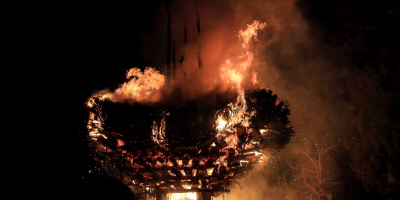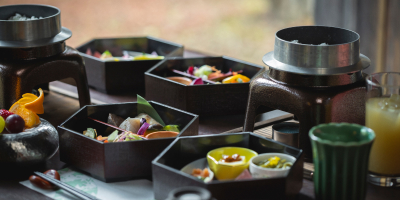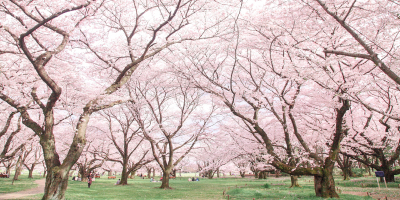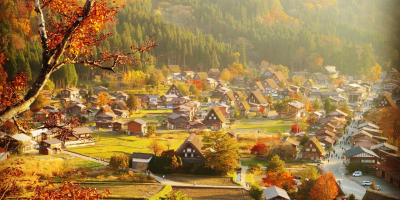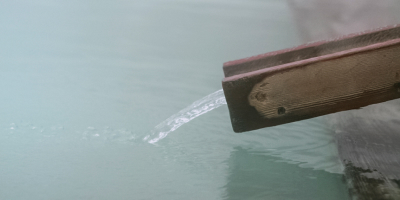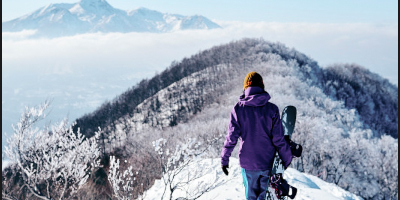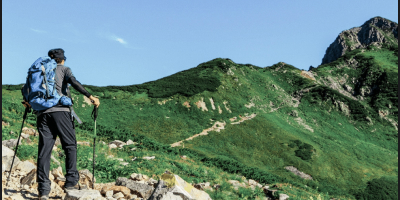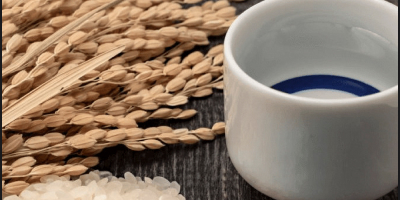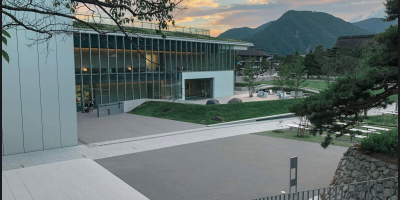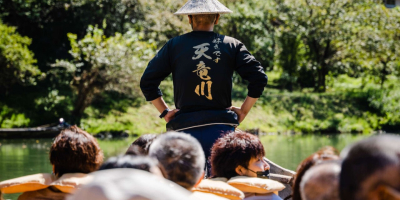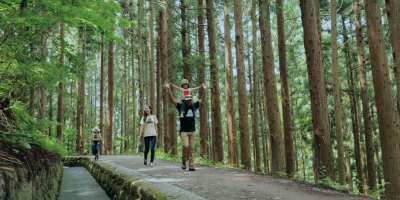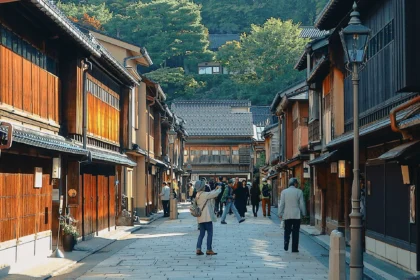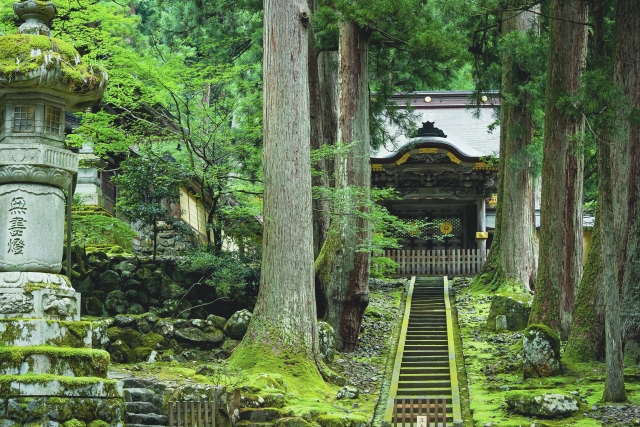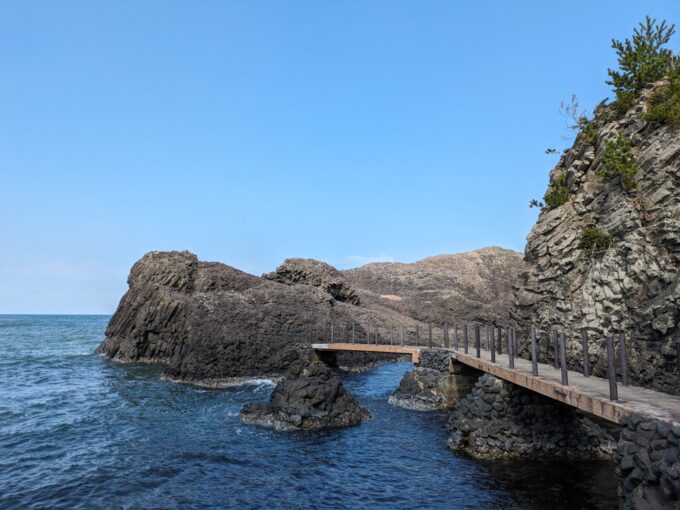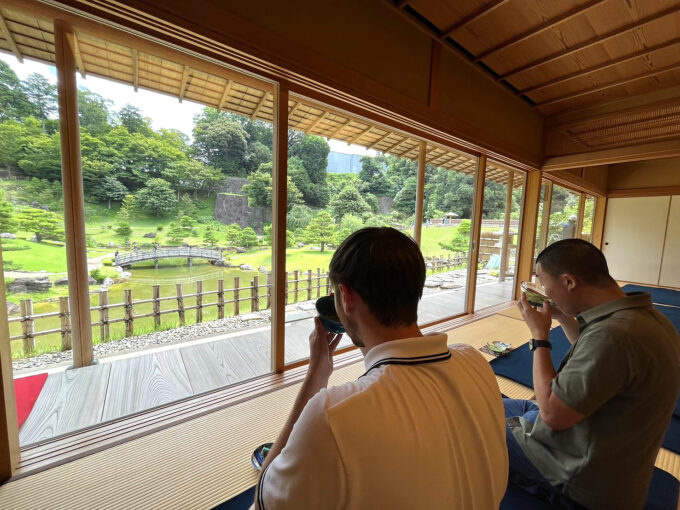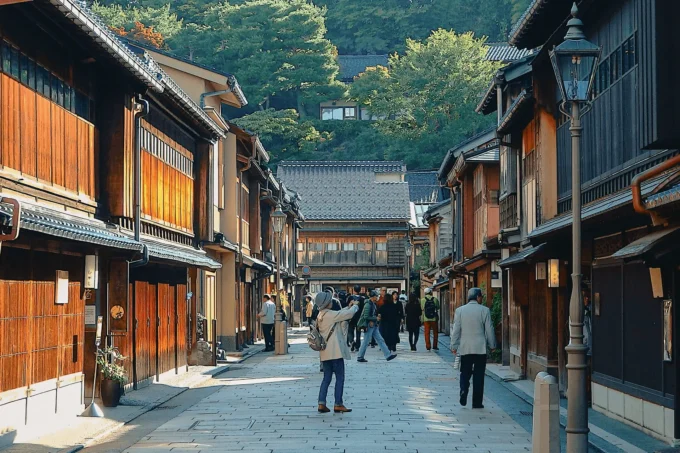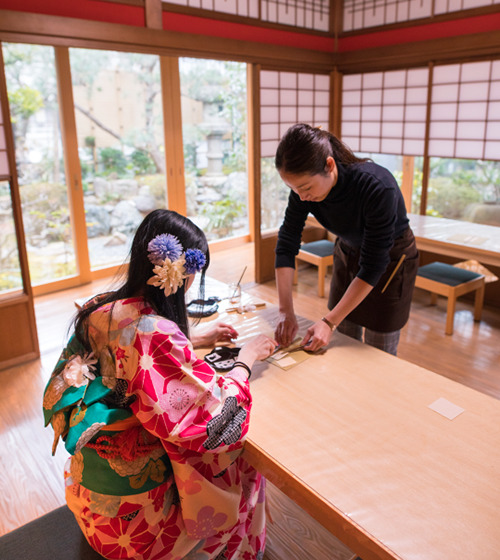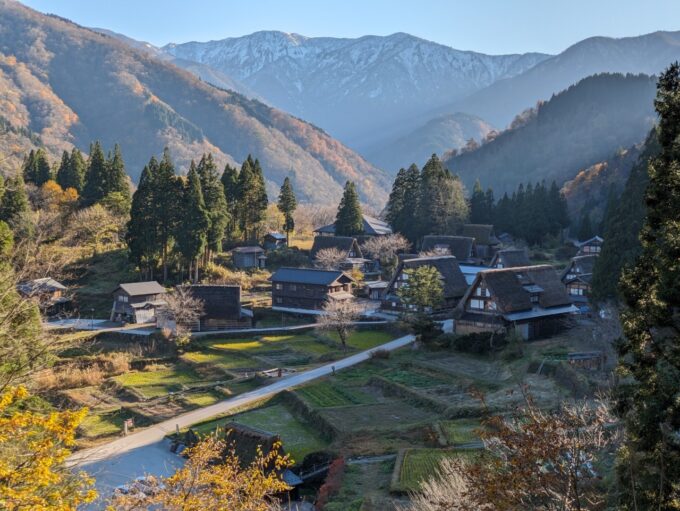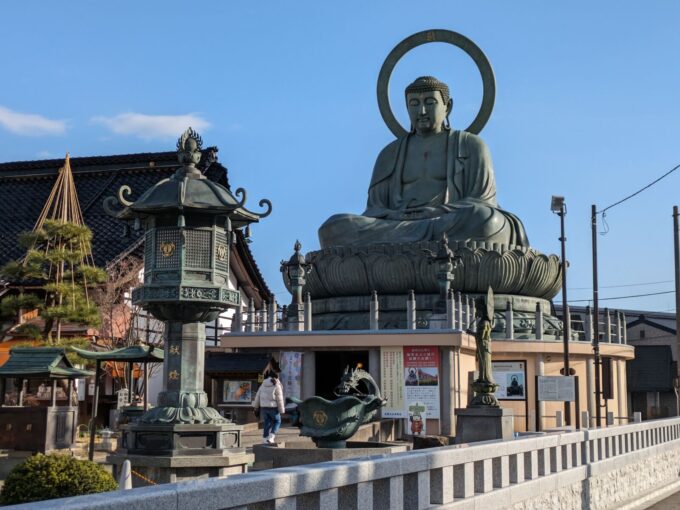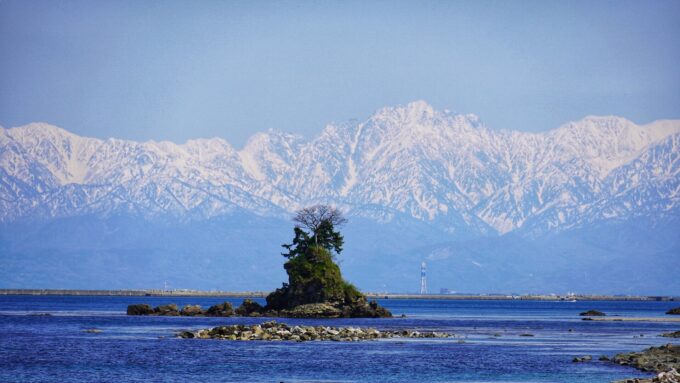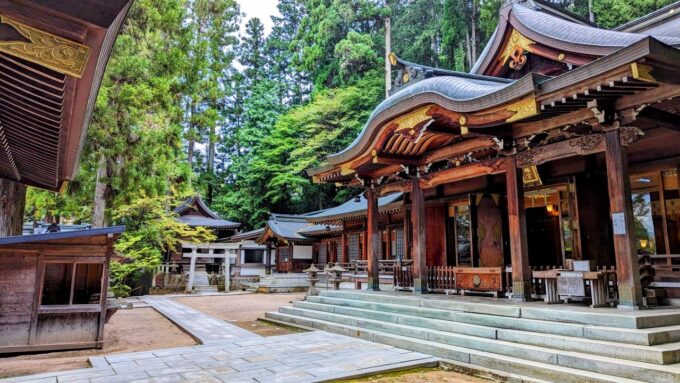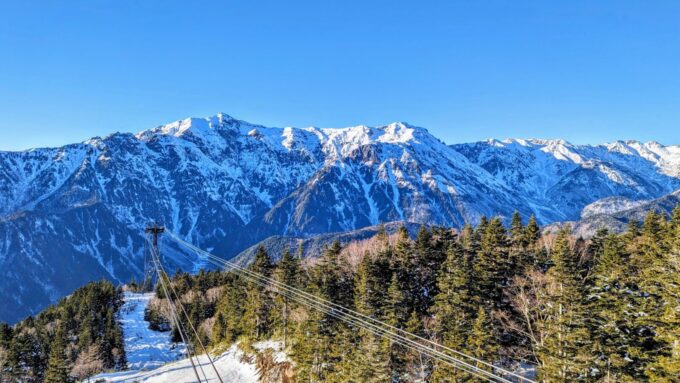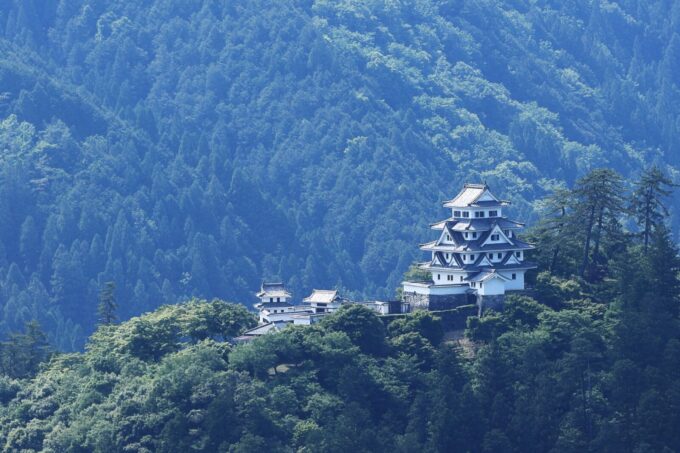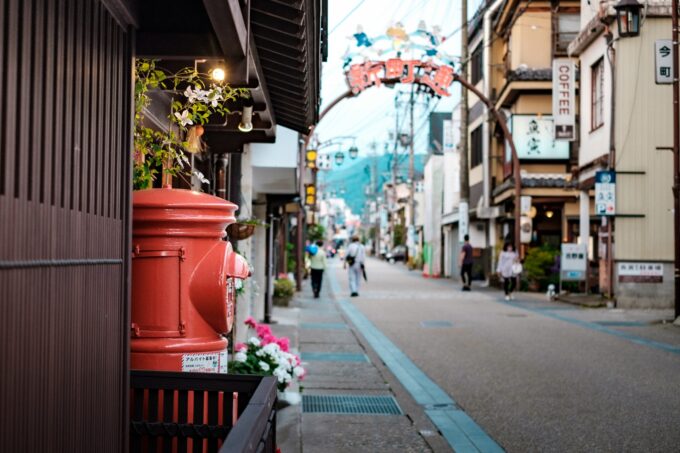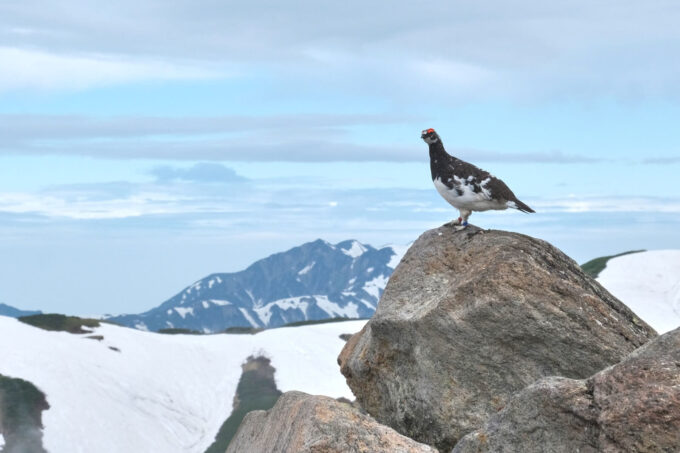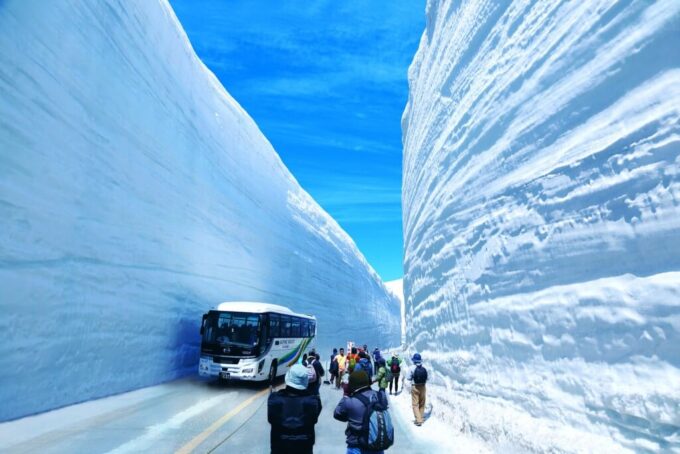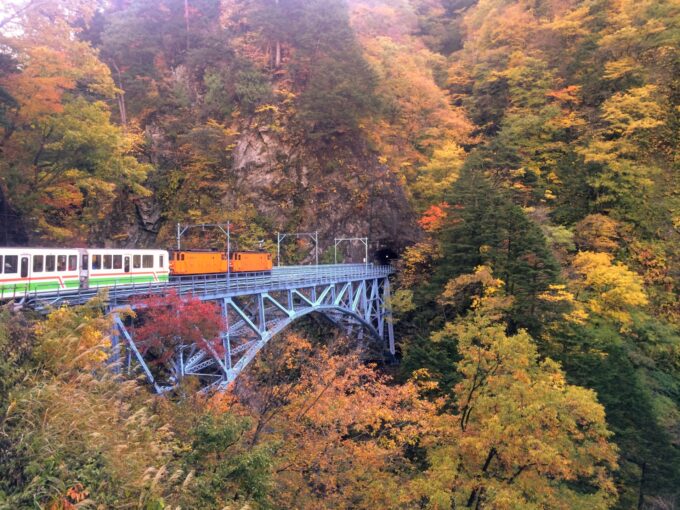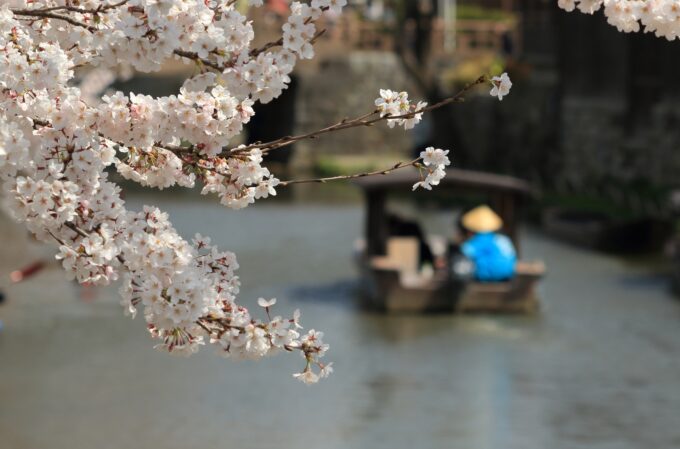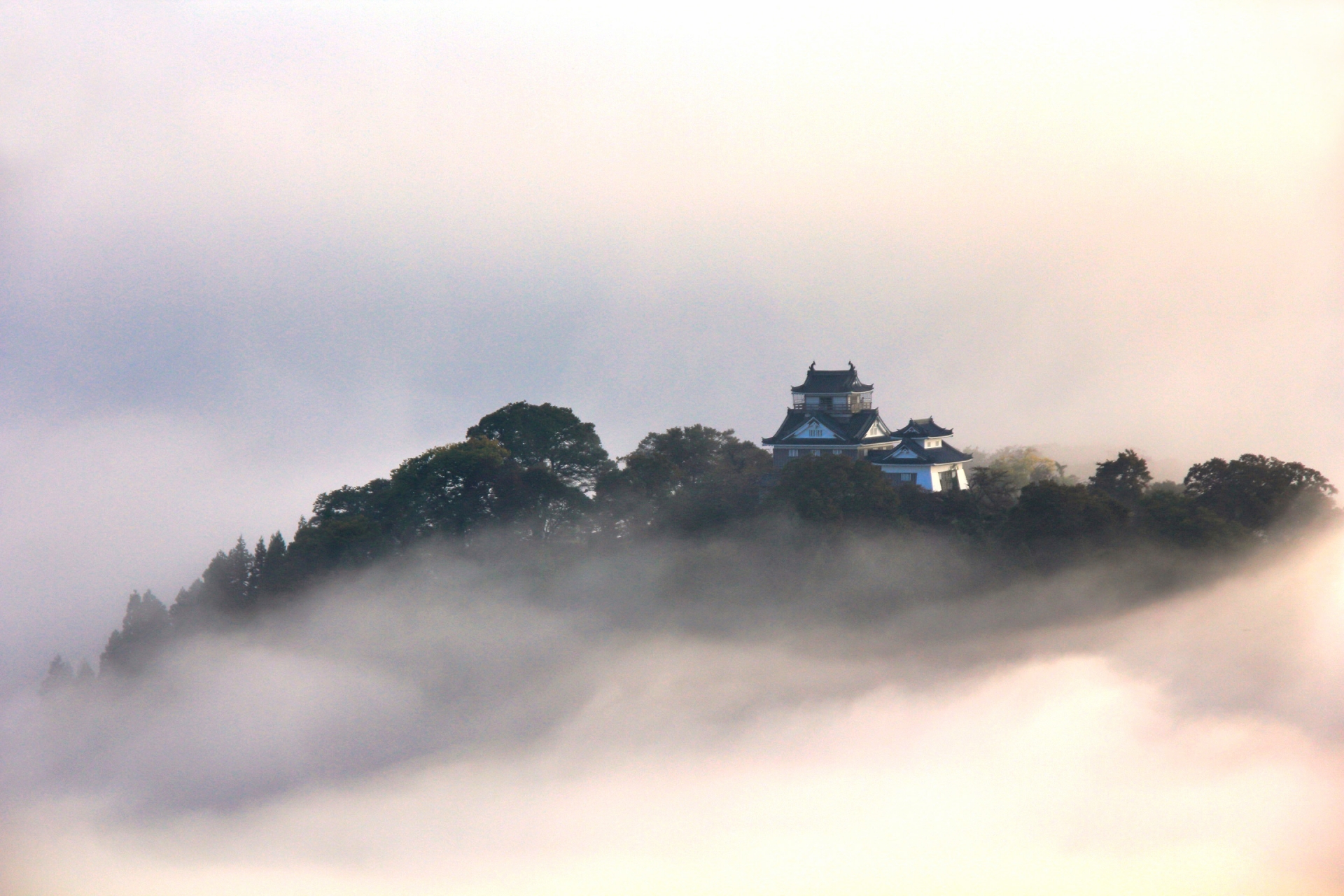
Fukui is one of those prefectures in the Japan which flies under the radar for both Japanese and international travelers. Tucked away in the north-west corner of Central Japan, Fukui is easy to miss when planning your travels around Japan. Fukui Station is however a convenient stop on the Hokuriku Shinkansen service running from Tsuruga and Fukui to Kanazawa, Toyama and Tokyo. The Limited Express Thunderbird service from Tsuruga also gives easy access to Kyoto and Osaka. and given the ease of getting there, a couple of outstanding local attractions make Fukui an attractive destination for many travelers.
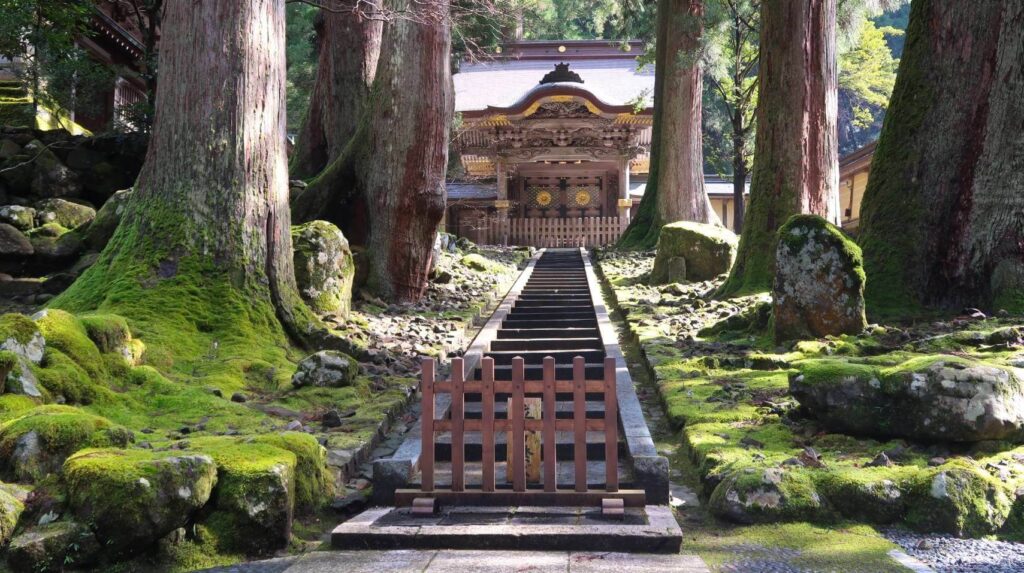
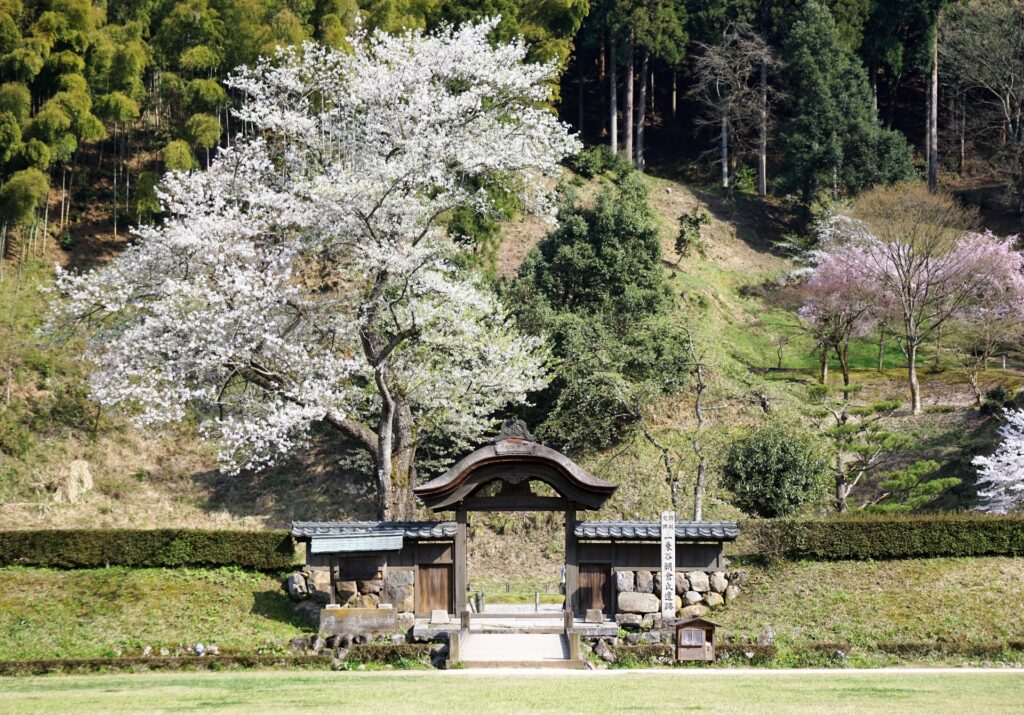
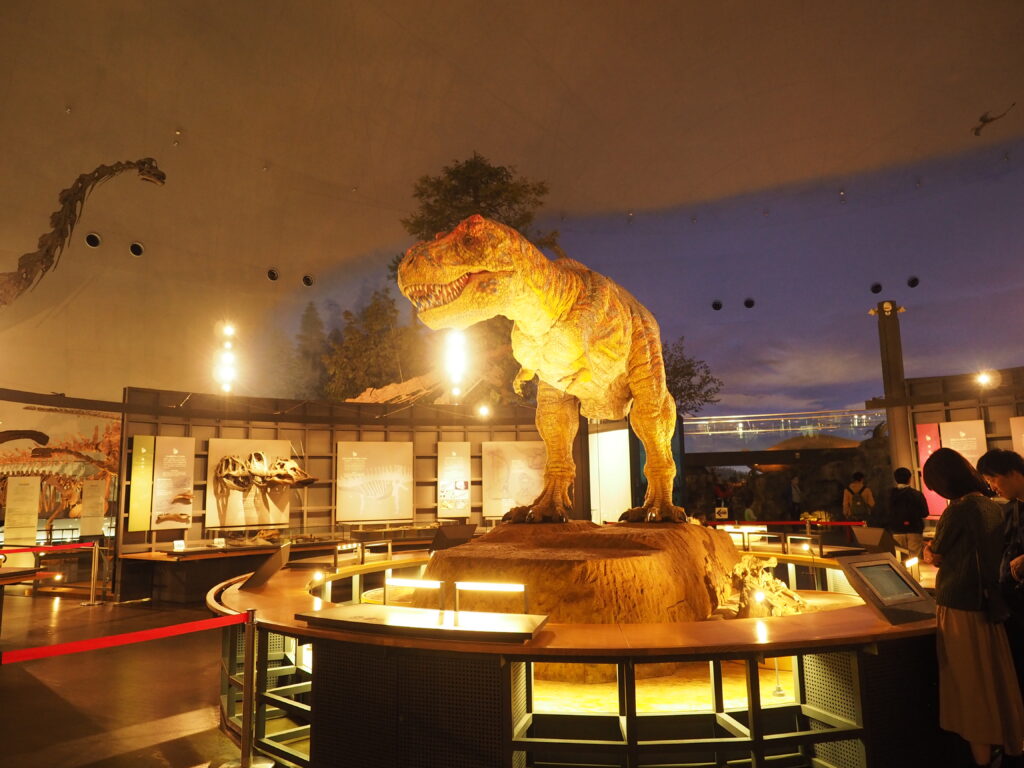
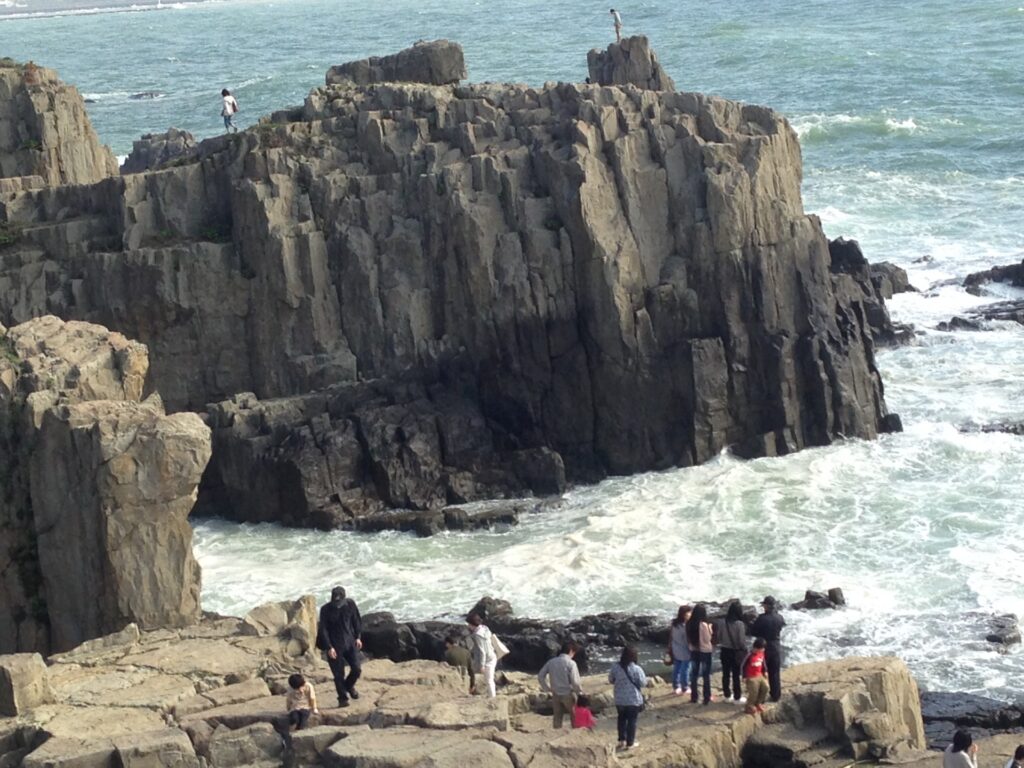
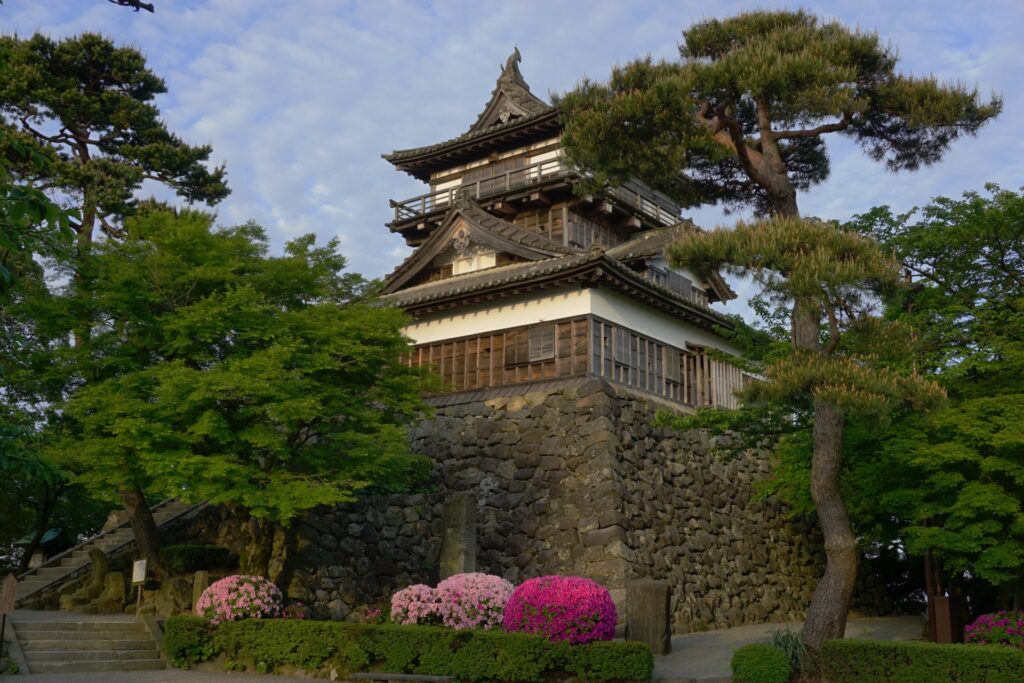
Originally called ‘Echizen’, the region is home to one of Japan’s most important and impressive temples – Daihonzan Eihei-ji. Accessible by bus or local train from Fukui Station, Eiheiji is one of two main temples of the Soto school of Zen Buddhism. Seventy buildings make-up the beautiful temple complex with more than two hundred monks and nuns in residence. There are also ruins at Fukui Castle and Ichijodani, a former castle town that transport you back to the Warring States and Edo periods. Among Japanese, Fukui is equally well-known as ‘dinosaur country’. Fukui is synonymous with dinosaurs and in 2009, the entire area of Katsuyama City was declared the ‘Dinosaur Valley Fukui Kastuyama Geopark’.

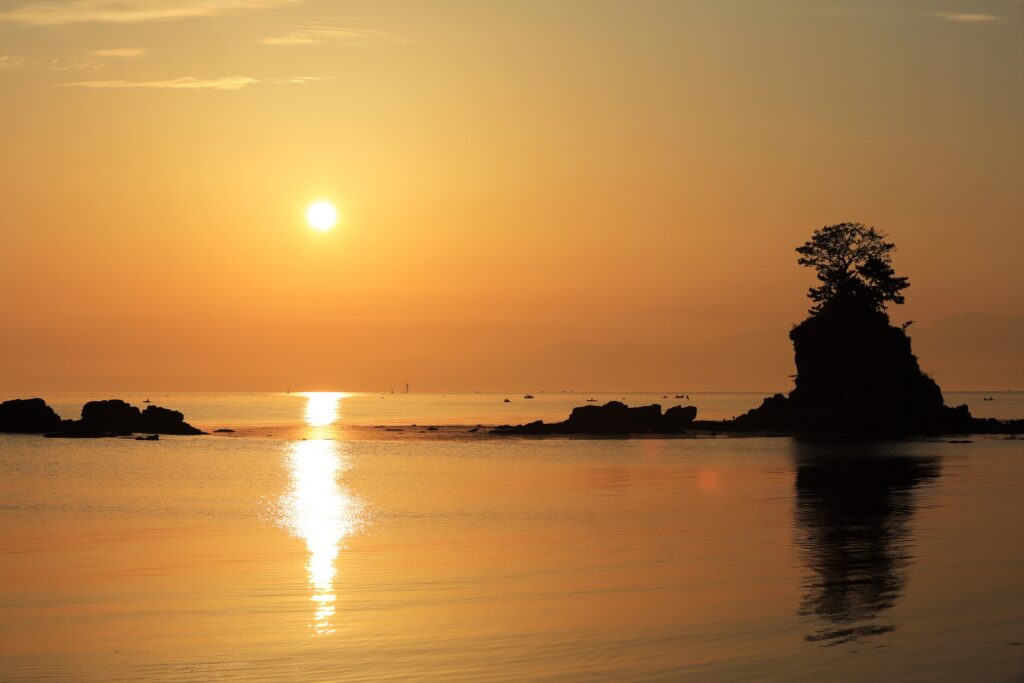
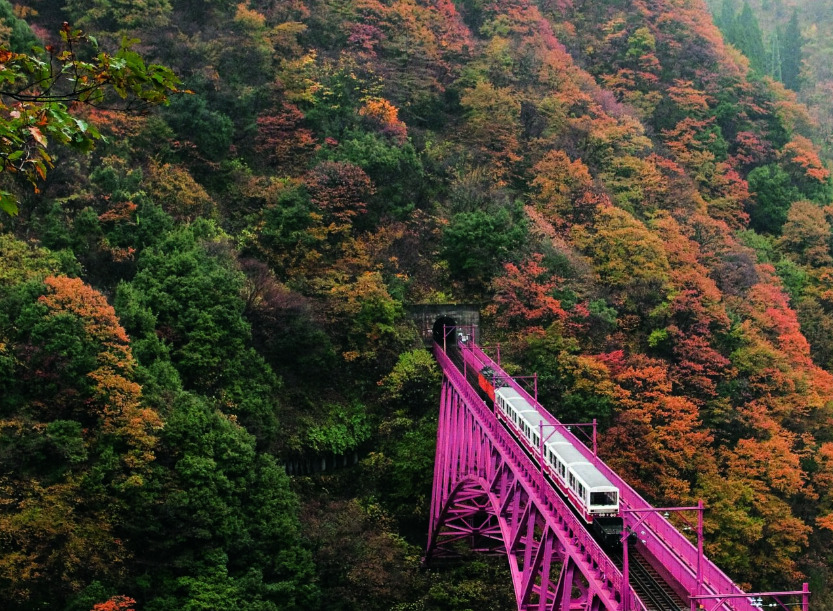
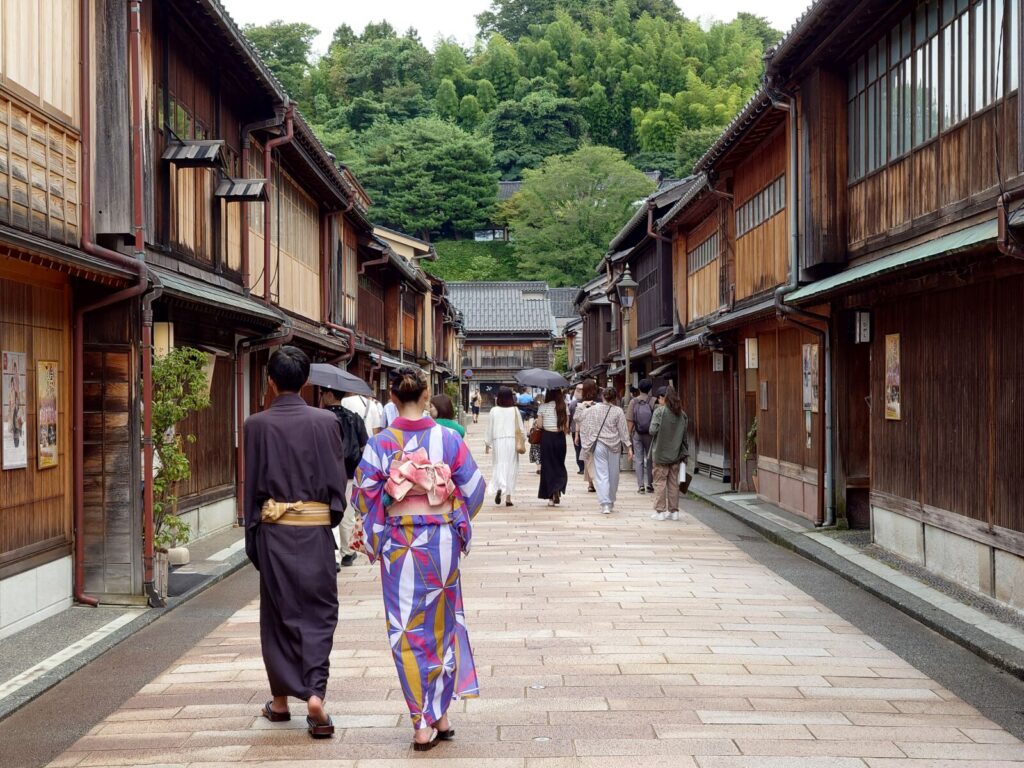
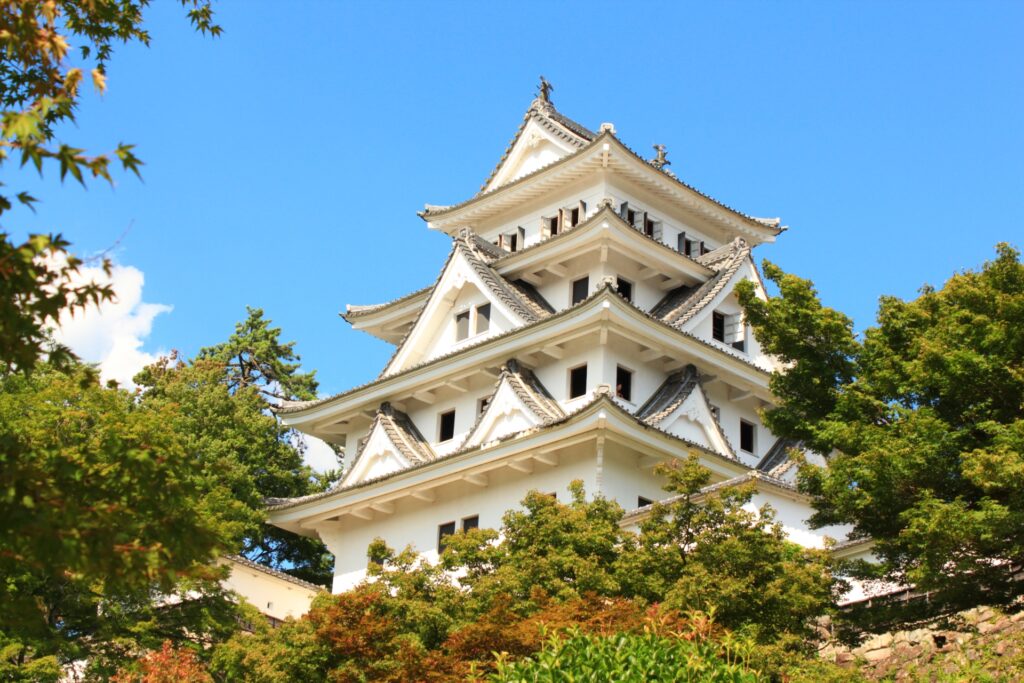
Going a bit further from Fukui City you'll find many other great cities and places to see. The samurai city of Kanazawa, the UNESCO thatched-roof house village of Shirakawago, the old town of Takayama, the Amaharashi Coast, the Kurobe Gorge, Gujo-Hachiman and many other locations can easily be explored from Fukui. Start here as a gateway to the entire Hokuriku region and beyond!
WHERE IS FUKUI?
Nestled between Ishikawa Prefecture and Kyoto Prefecture on the north coast of Japan, Fukui is often overlooked by international visitors as they pass from the more famous cities of Kanazawa and Kyoto. A stop on the Hokuriku Shinkansen, Fukui is slowly emerging from the shadow of its more famous neighbors as visitors discover a quiet corner of Japan with a couple of truly fantastic designations. For any visitor headed to Kanazawa or Kyoto, it's worth considering a stop in Fukui to enjoy all that has to offer (while also escaping the crowds of those more famous cities).
20 THINGS TO DO IN FUKUI
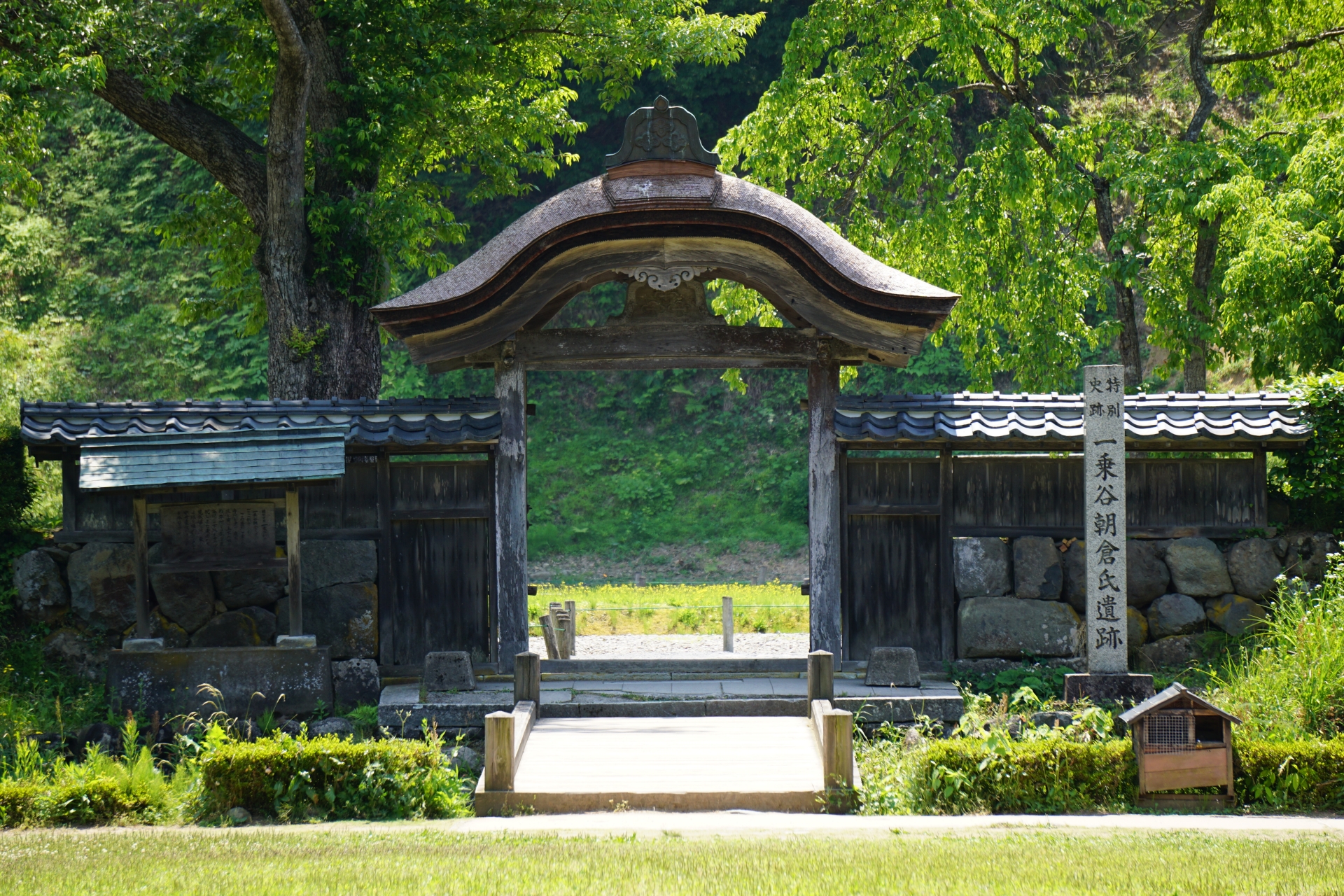
Fukui Prefecture hugs the north coast of Japan, far from the sprawling metropolises of Tokyo, Yokohama and Osaka. This is a tranquil corner of Japan where you can enjoy open spaces, small towns, great seafood and a couple of the country's best destinations. Largely undiscovered by international visitors, the Fukui Prefectural Dinosaur Museum is one of the best museums in Japan while the sprawling temple complex Daihonzan Eihei-ji is as beautiful and inspiring as it is historically important. Throw-in a couple of other intriguing attractions and some of the best crab in Japan, Fukui is quietly confident in its ability to impress! Let's start with an attraction great for guests of all ages:
1 / DAIHONZAN EIHEI-JI TEMPLE / all year round
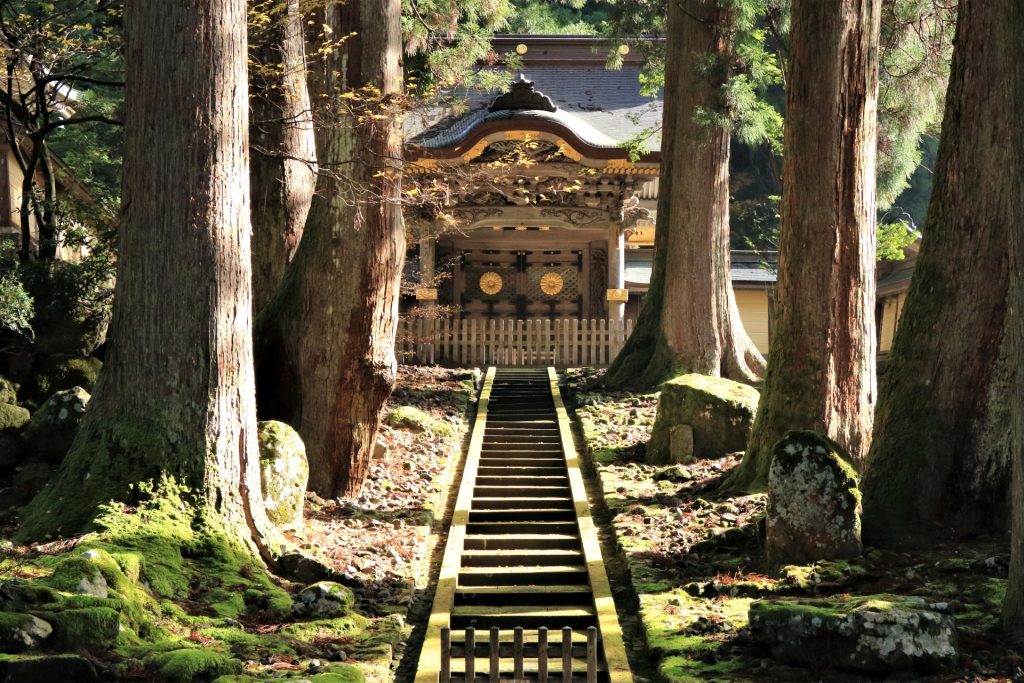
One of Japan’s most impressive and important temple complexes, Daihonzan Eihei-ji was established in 1244 by Dogen, the Buddhist scholar who brought Soto Zen Buddhism from China to Japan. - now one of Japan's largest sects. Located in a picturesque area of Fukui and set among a cedar forest, the temple complex is comprised of 70 buildings and structures connected by covered walkways. Upon entering the temple, visitors are first required to sit in the reception hall and listen to a brief introduction about Eihei-ji including orientation and other important information.
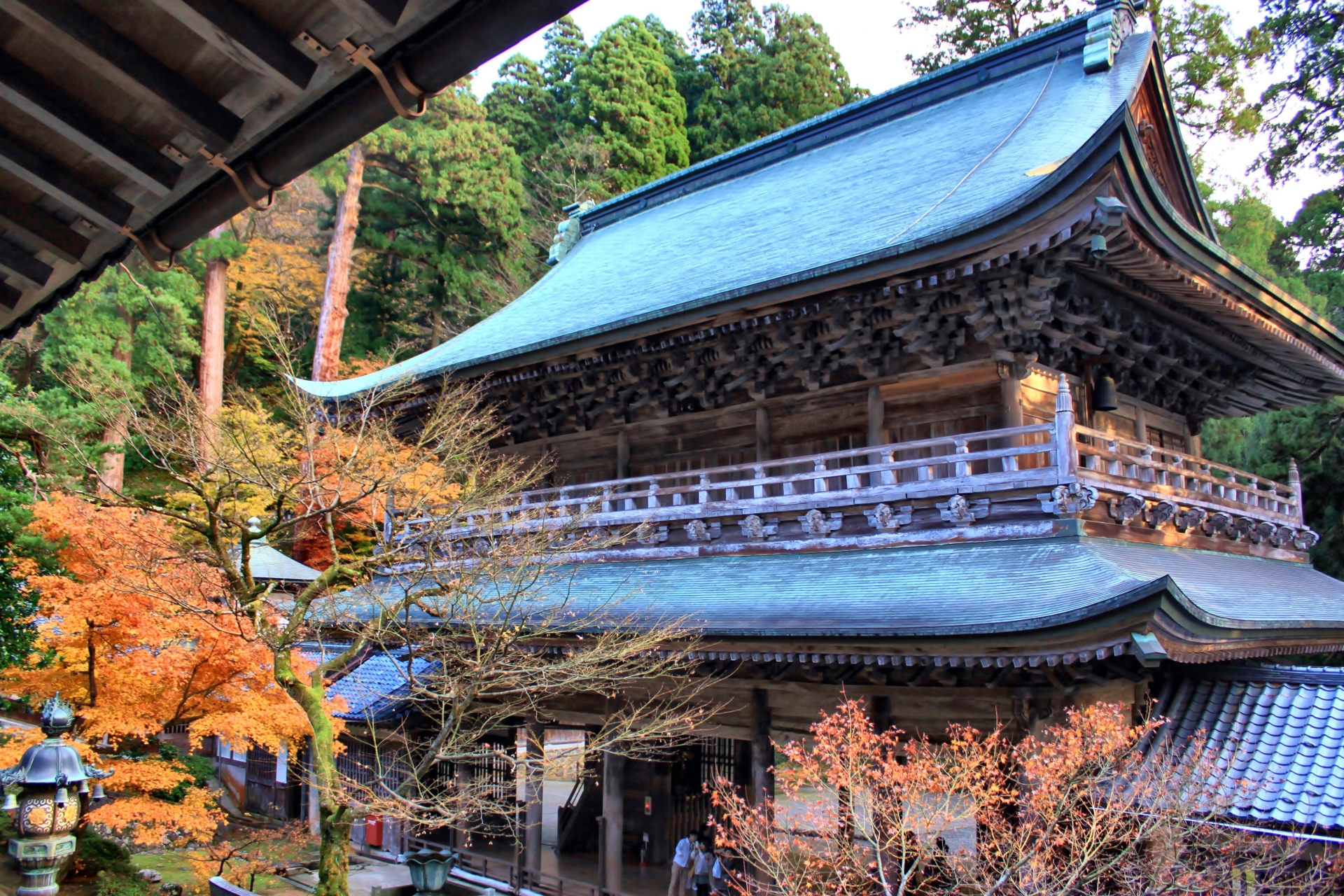
The introduction is relatively short and provides good information, with English pamphlets provided to international visitors. Once inside the complex, notable buildings including the Sanmon Gate, Buddha Hall and the Hatto (Main Lecture Hall). One of Fukui’s most important and rewarding destinations, a visit to Daihonzan Eihei-ji Temple is highly recommended.
Interested in walking through an environment built by and for Zen? Join us on our tour where we will explore Fukui City proper in the morning and head out to Eihei-iji Temple in the afternoon. See Buddhist monks diligently working alongside beautiful natural and architecture backgrounds which can only really be found here.
1 Day Tour from Kanazawa: Eiheiji Temple and Fukui City Castle Town
- Spots:
- Pick-up:
- Drop-off:
2 / FUKUI PREFECTURAL DINOSAUR MUSEUM / all year round
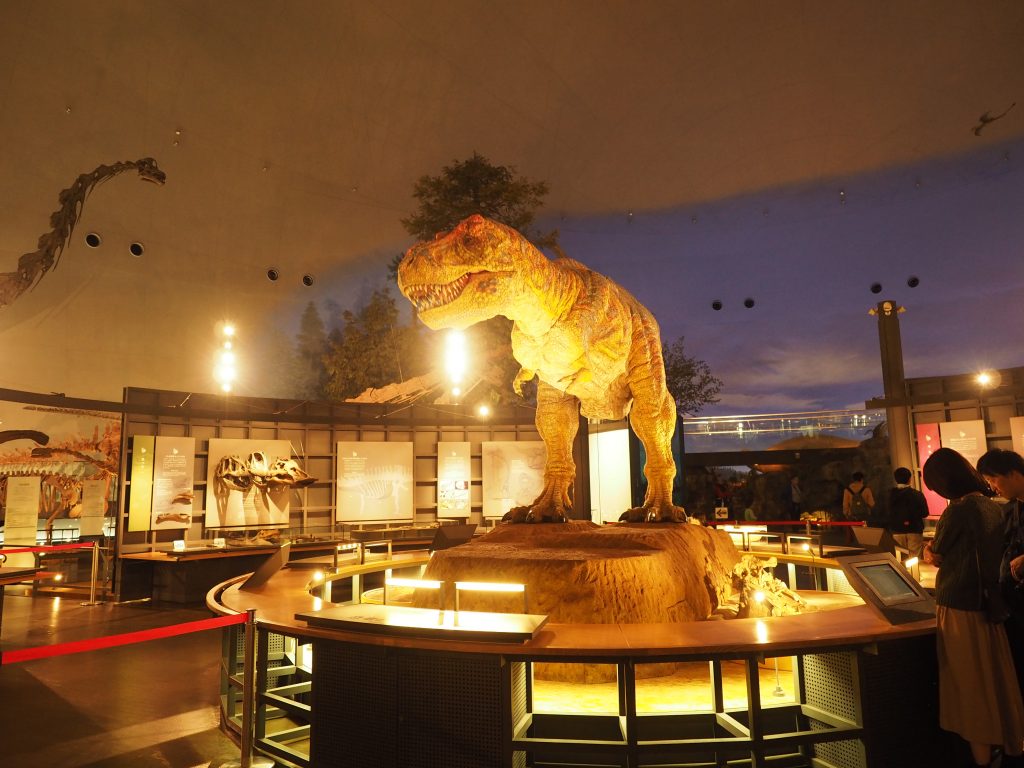
Without doubt, this is one of Japan’s best museums for international visitors. Regarded as one of the world’s best paleontological museums, the Fukui Prefectural Dinosaur Museum is spread over four-floors, exhibiting more than 40 skeletons along with fantastic reconstructions, animatronics and interactive displays. As a paleontological (study of prehistoric life) institution, the museum also includes wonderful displays of earth sciences, fossils and the history of life on Earth including the evolution of dinosaurs into birds.
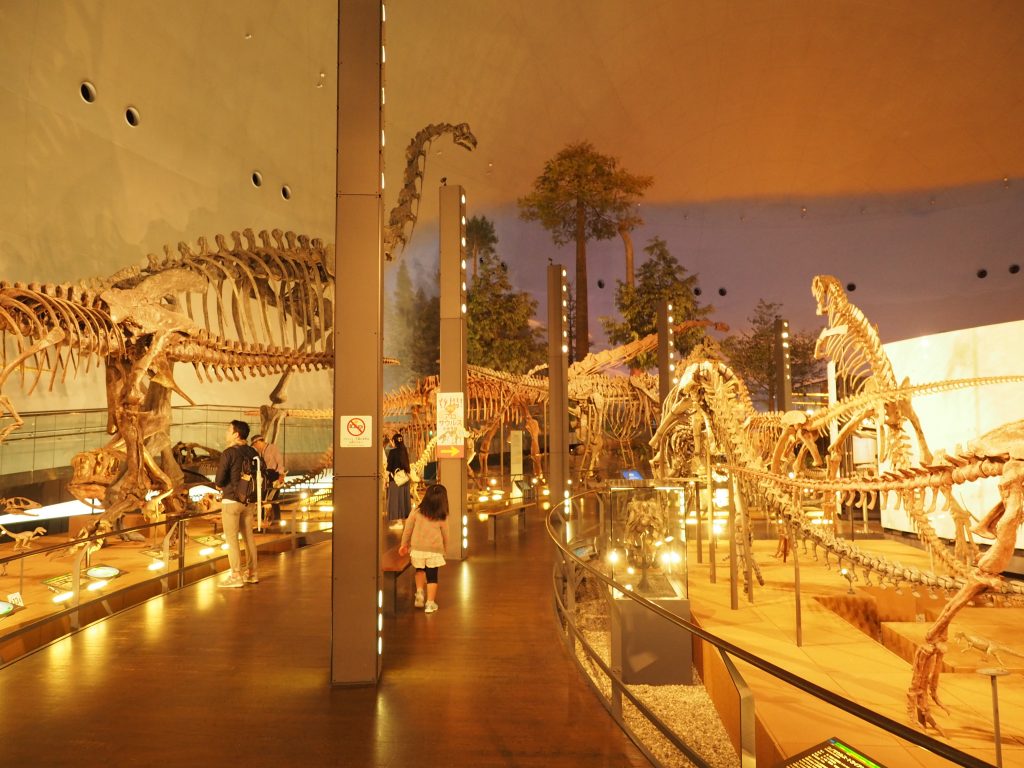
The museum includes a good amount of English information making it a fun and informative experience for international visitors. A special exhibition area, research laboratory (which be viewed by visitors through glass) restaurant and gift shop are also on-site. Equally fun and informative for adults and children, make sure you allow 3 to 4 hours to enjoy everything the museum has to offer.
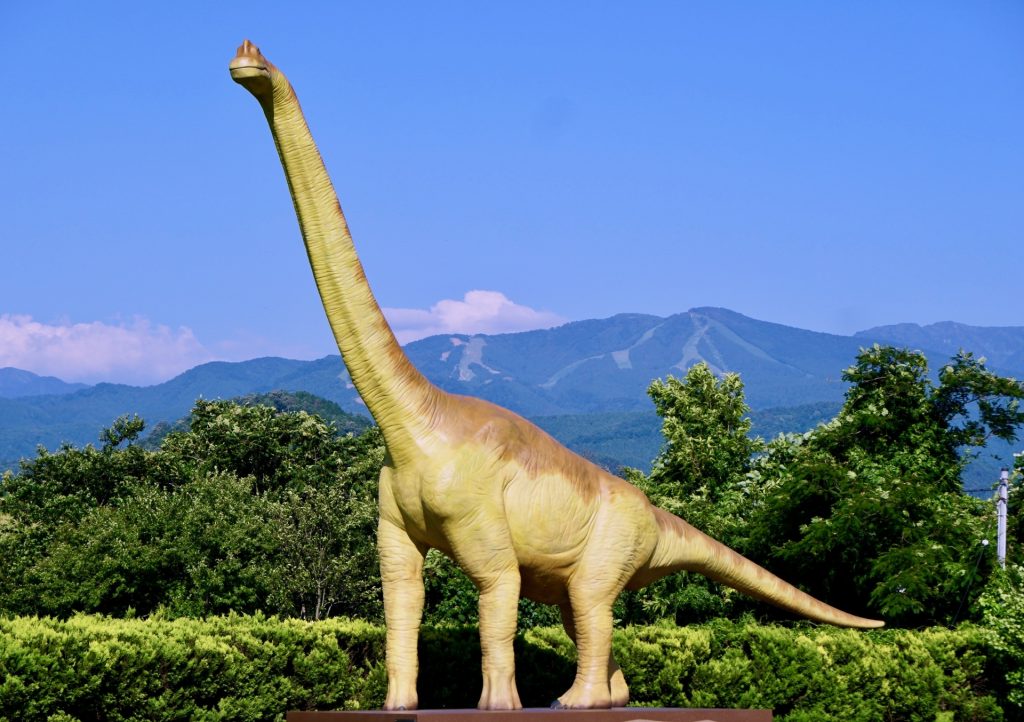
Located next to the Fukui Prefectural Dinosaur Museum, the Katsuyama Dino Forest Park is open from 09:00 to 16:00 and boasts 44 life-size dinosaurs, including some animatronic reconstructions, spread across open parkland and forest. Paths allow visitors to walk through the park and experience just how immense and downright terrifying dinosaurs would have been. Spread across eight themed areas, the park is aimed at children but also great fun for adults.
Tours can also be arranged to one of the nearby excavation sites for a first-hand experience of a fossil excavation. Departing from the museum, tours take around 2 hours and must be booked in advance. Available from spring to autumn, the tour guide takes visitors to a nearby quarry site to witness the active excavation, inspect fossils up-close before allowing visitors to assist with some basic tasks. Tours are conducted in Japanese with English pamphlets available.
3 / HEISENJI-HAKUSAN SHRINE / all year round
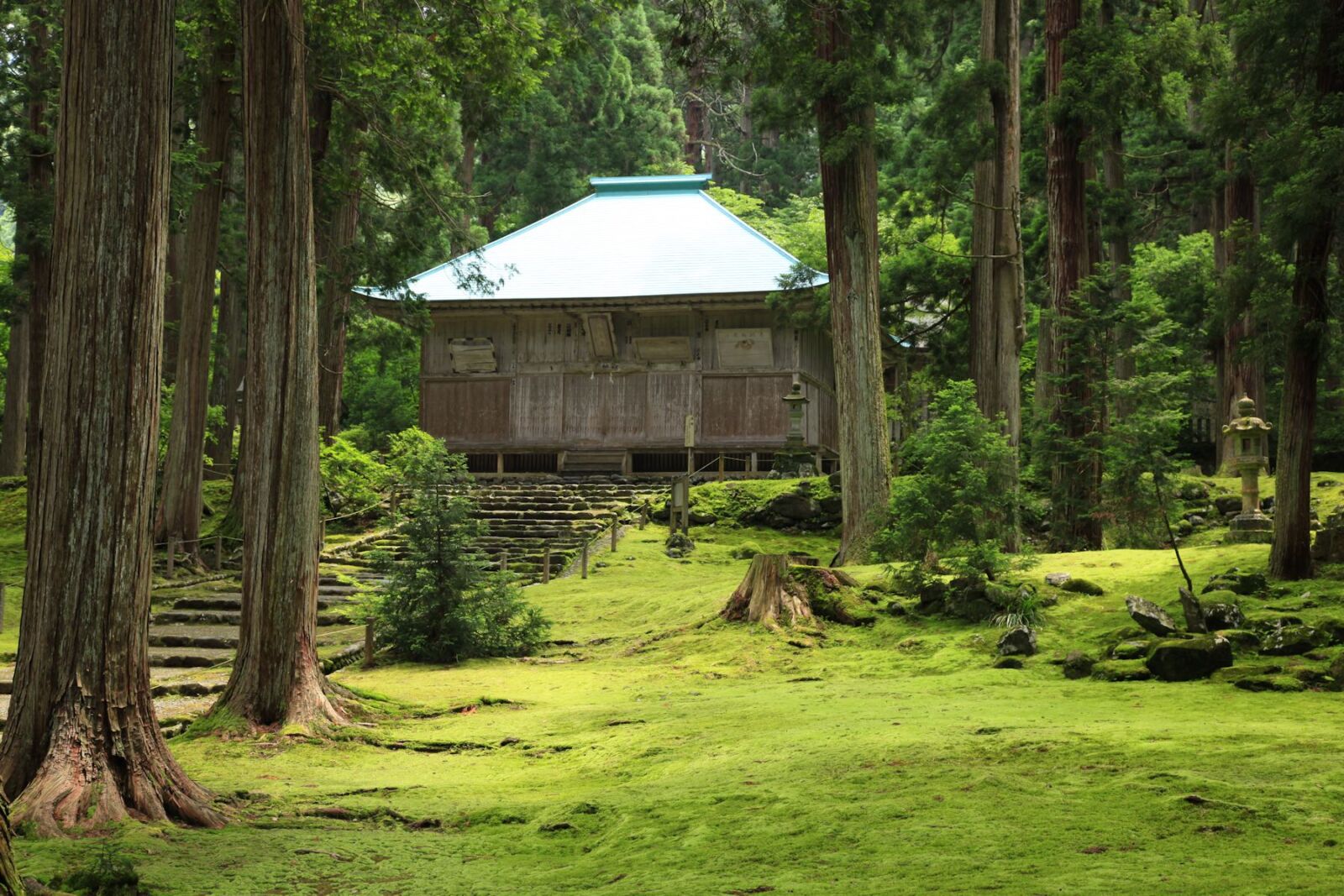
If you travel from Fukui city past Eiheiji, even deeper into the mountains there are even greater gems to find. The Hakusan-Heisenji Shrine is a mythical experience as you climb up the steps to the main hall. The moss covered steps and shrine grounds make you feel just like you’re in a Ghibli movie. The shrine was founded in 717 when a monk sought to climb Mt. Hakuzan, one of the three sacred mountains of Japan. There are many little things as you go up to notice, such as a torii in front of a small lake. This was where a goddess appeared and told the monk to climb the mountain. The simple unpainted wooden torii really creates a mystical feeling. Although difficult to reach, it is definitely worth it.
4 / MARUOKA CASTLE / all year round
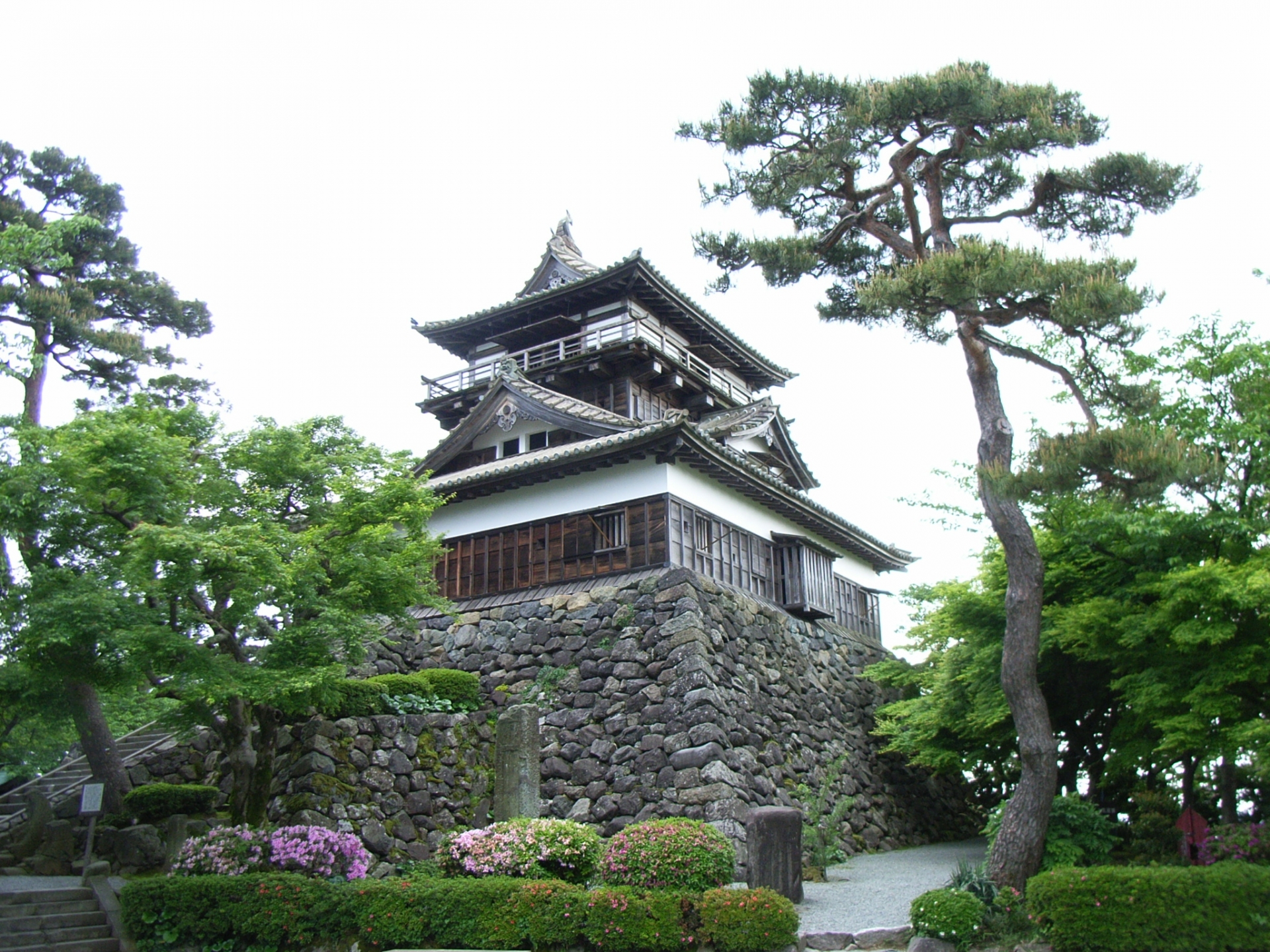
Maruoka Castle is a relatively small historic complex but one of Japans few remaining original castles. Constructed in the late-16th century, only the original keep (main tower) and walls remain today, with the surrounding grounds now a public park with many cherry blossom trees – something which is typical in cities throughout Japan. Visitors to the castle and enter the keep and inspect the interior design of the castle, with a nearby museum providing information and artefacts from its long history.
5 / FUKUI CITY / all year round
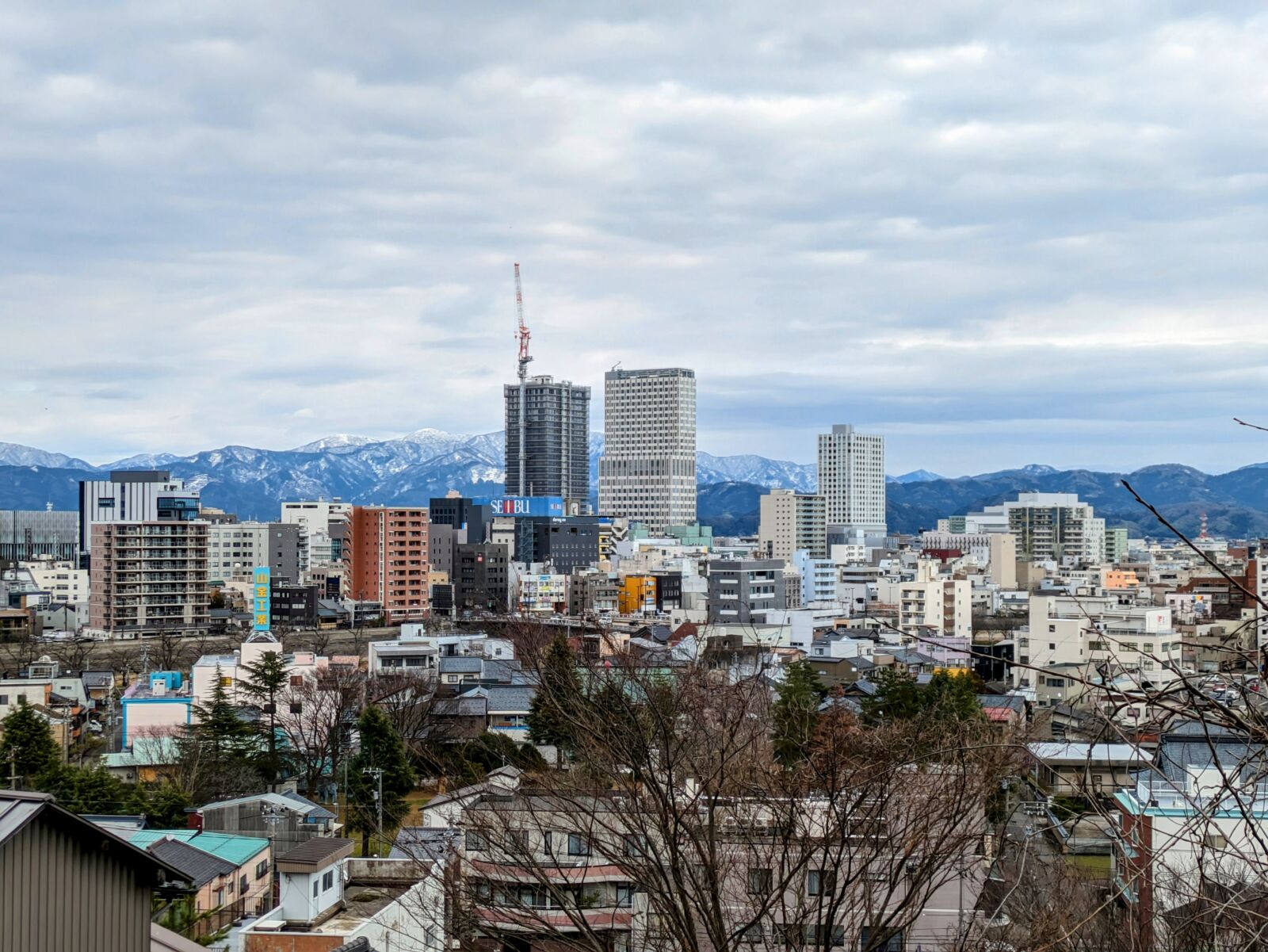
The capital of the prefecture has a history intertwined with important events sense the beginning of Japan. Today you can visit many of its sights such as the castle walls which now enclose government offices, a rainbow shrine and the Atagozaka Slope for excellent views of the modern city. The Yokokan Garden is also a beautifully reconstructed home where the former daimyo used to live. Fukui City is an excellent place to enjoy, eat good food and visit many of the other famous sights in the prefecture. If you want to explore the city with a local guide, join us for our tour below!
1 Day Tour from Kanazawa: Eiheiji Temple and Fukui City Castle Town
- Spots:
- Pick-up:
- Drop-off:
6 / TOJINBO CLIFFS / all year round
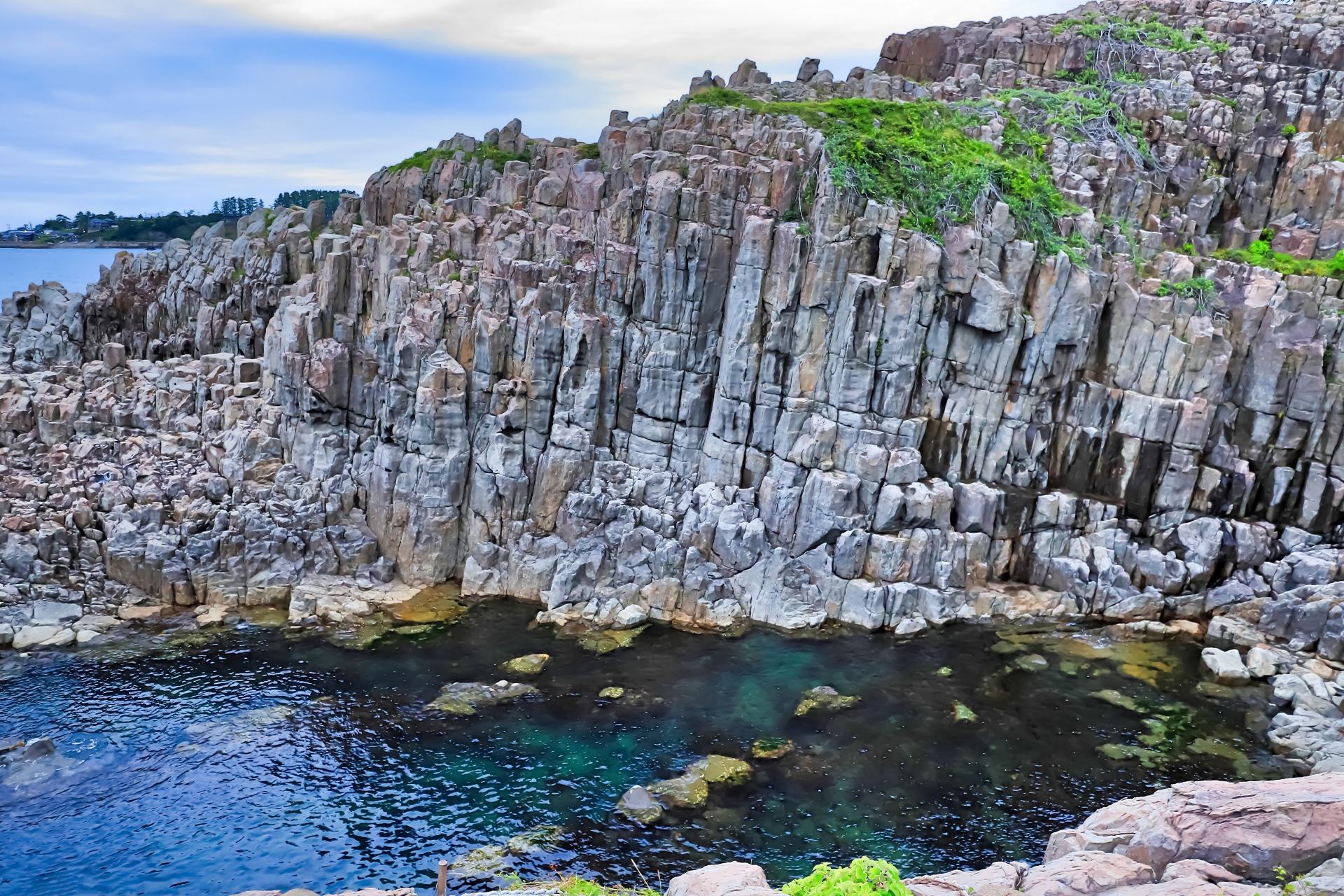
Located around 25km to the northwest of Fukui City, on the rugged coast along the Sea of Japan, the Tojinbo Cliffs are a unique and geologically important site. Along a 1km stretch of the coastline, basalt cliffs have been eroded by the constant movement and pull of the ocean, leaving a unique formation of what appear to be stone pillars.
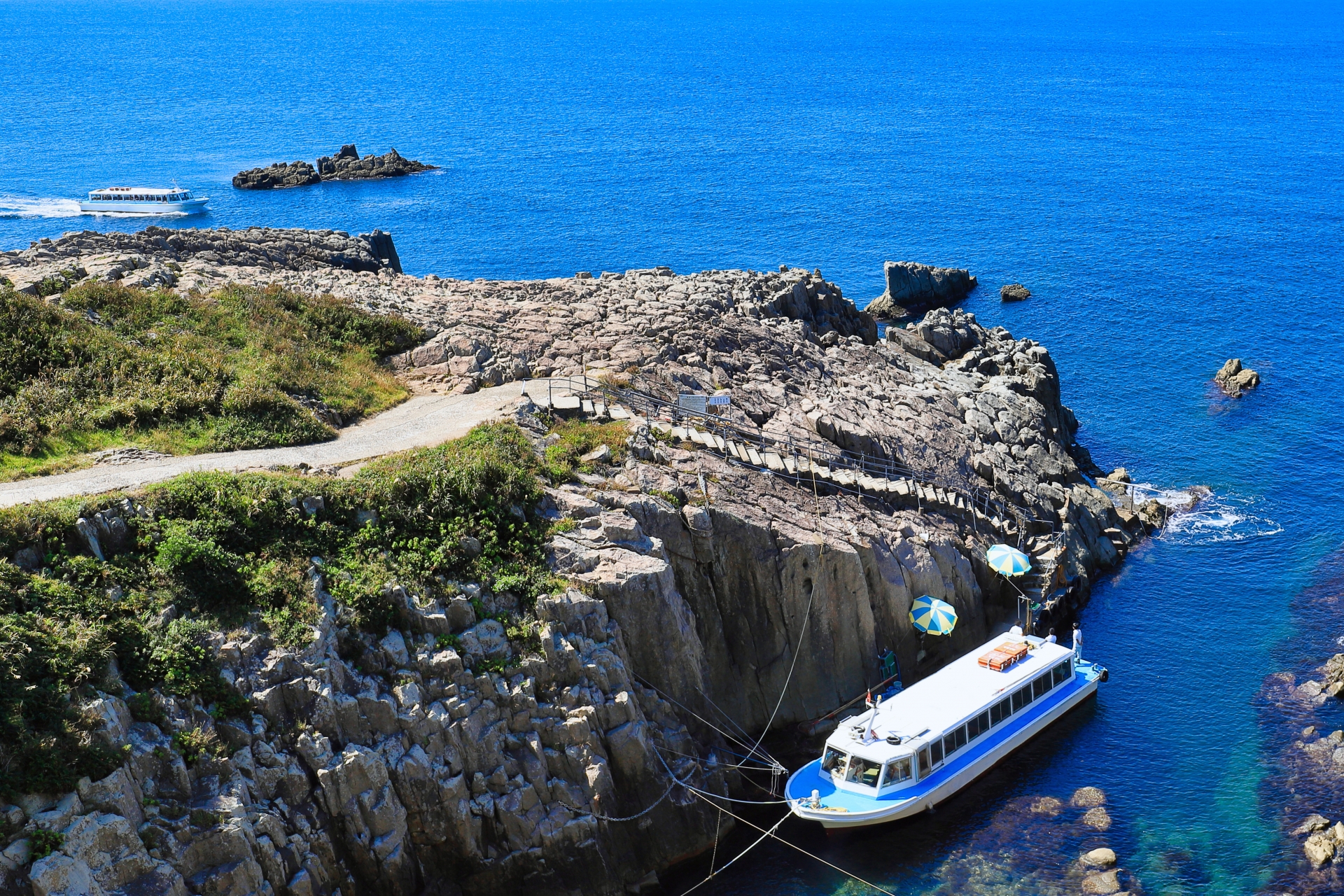
This is only known example of this perplexing natural feature in Japan and one of only three known formations in the world. In good weather, 30-minute boat cruises provide visitors with a view of the coast from the water however the experience is perhaps best enjoyed exploring by yourself on-foot. Just make sure to watch your step!
If you love the natural beauty of coastlines, nature walks and historic ports, please join us on our tour! You can see the stunning cliffs above as well as the sacred island of Oshima, famous for its its 200 meter long red bridge, and Mikuni Port, a bustling port that has maintained many of its traditional merchant buildings and picturesque temples.
1 Day Tour from Kanazawa: Fukui's Stunning Cliffs, Spiritual Island and Historical Port
- Spots:
- Pick-up:
- Drop-off:
7 / ECHIZEN ONO CASTLE / best: April to October
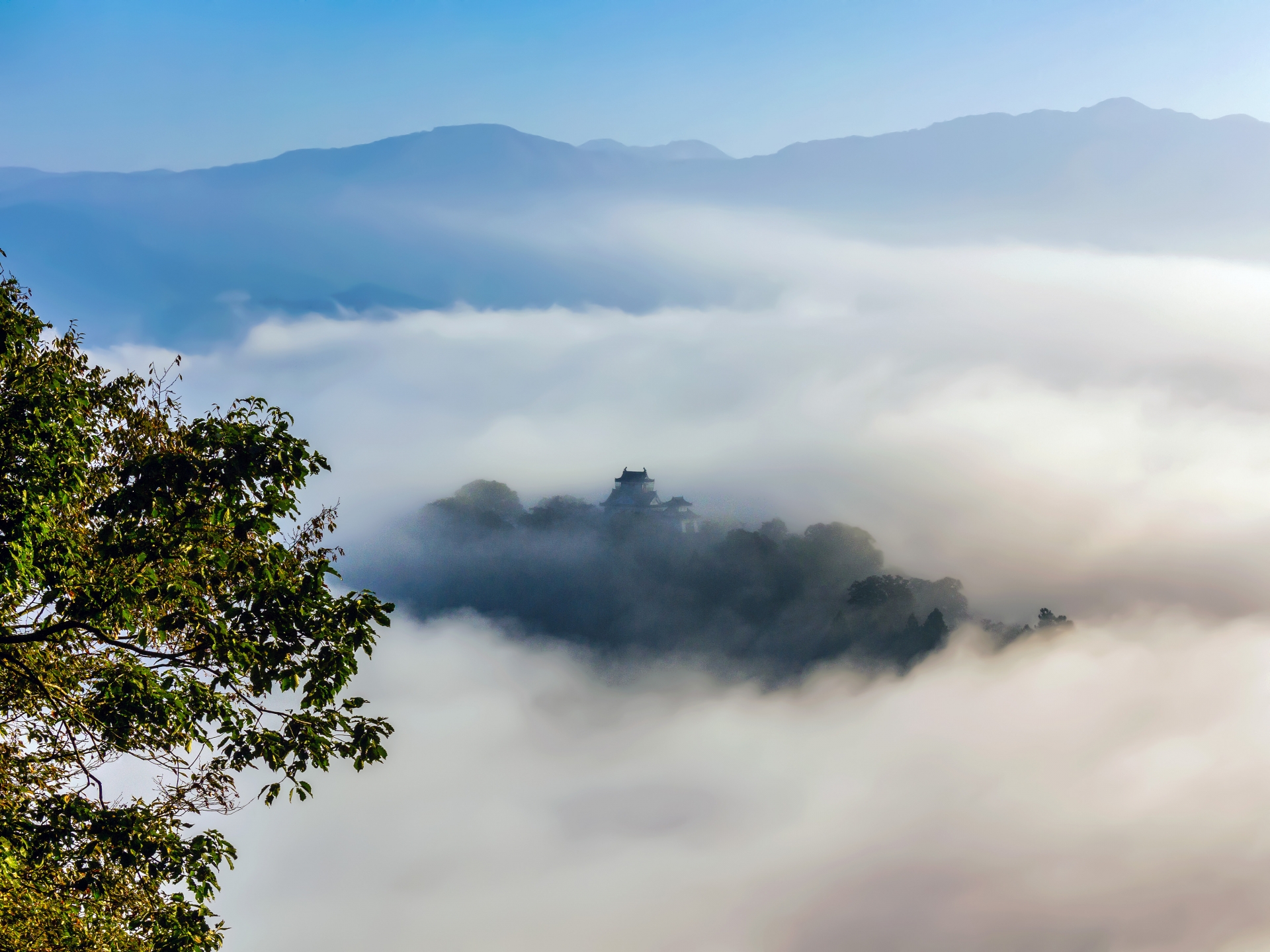
Another small castle in Ono City, Echizen Ono Castle sits at around 250 metres above sea on a hill above the surrounding plain. When weather conditions are right, cloud and mist sit below the castle providing the appealing illusion that it is floating in the sky. Sometimes referred to as the ‘Castle in the Sky’, Echizen Ono should not be mistaken for Takeda Castle in Hyogo, more famously known as a castle in the clouds or sky. While the original castle was built in the 16th century, the current tower is a 20th century reconstruction.
8 / ICHIJODANI ASAKURA CLAN RUINS / all year round
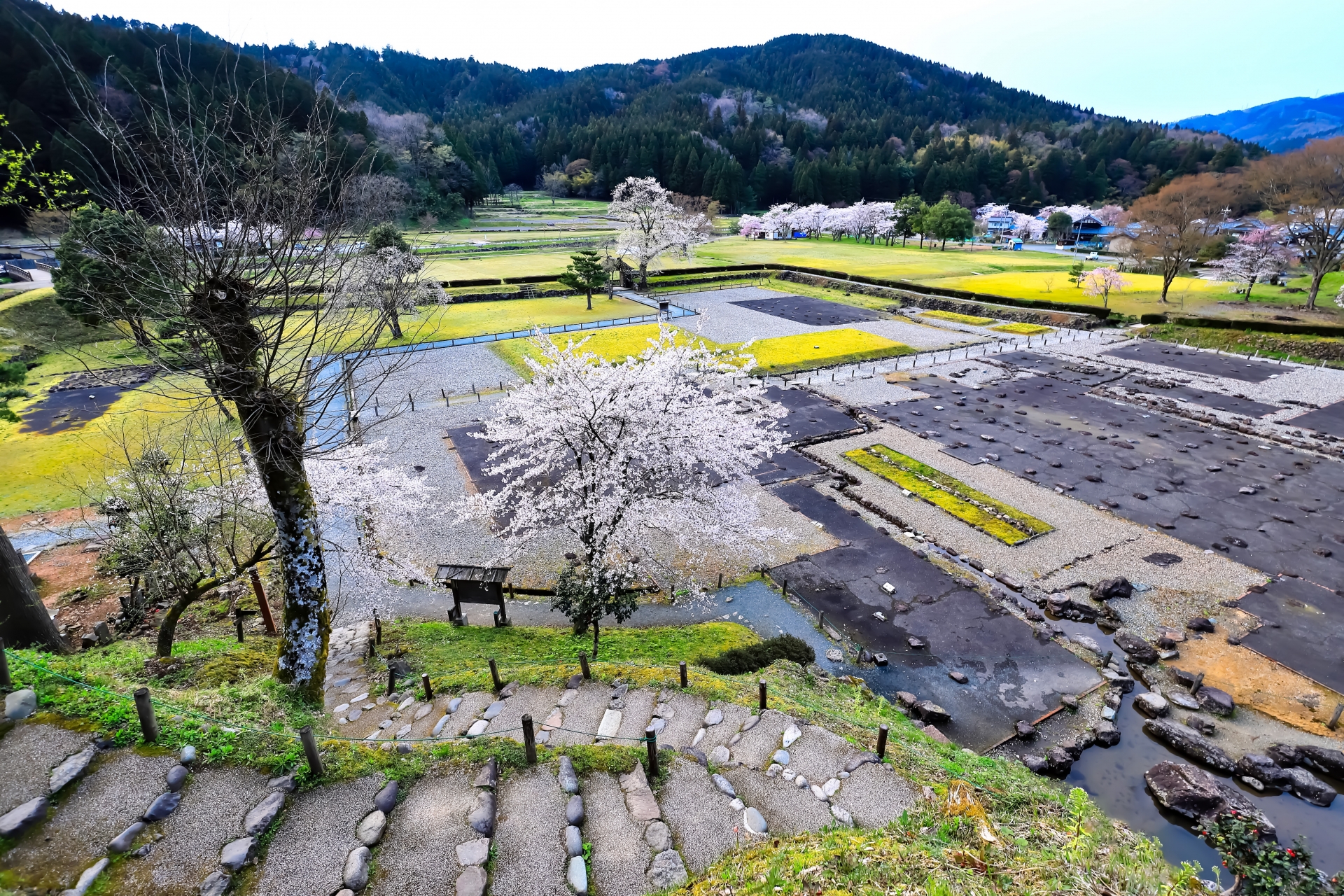
When heading to the Ichijodani Asakura Clan Ruins, it’s important to understand what to expect. Once the base of the powerful Asakura clan during the Muromachi Period (1333-1573), the “ruins” are compromised of excavated areas and facsimiles of walls and gates and some reconstructed buildings.
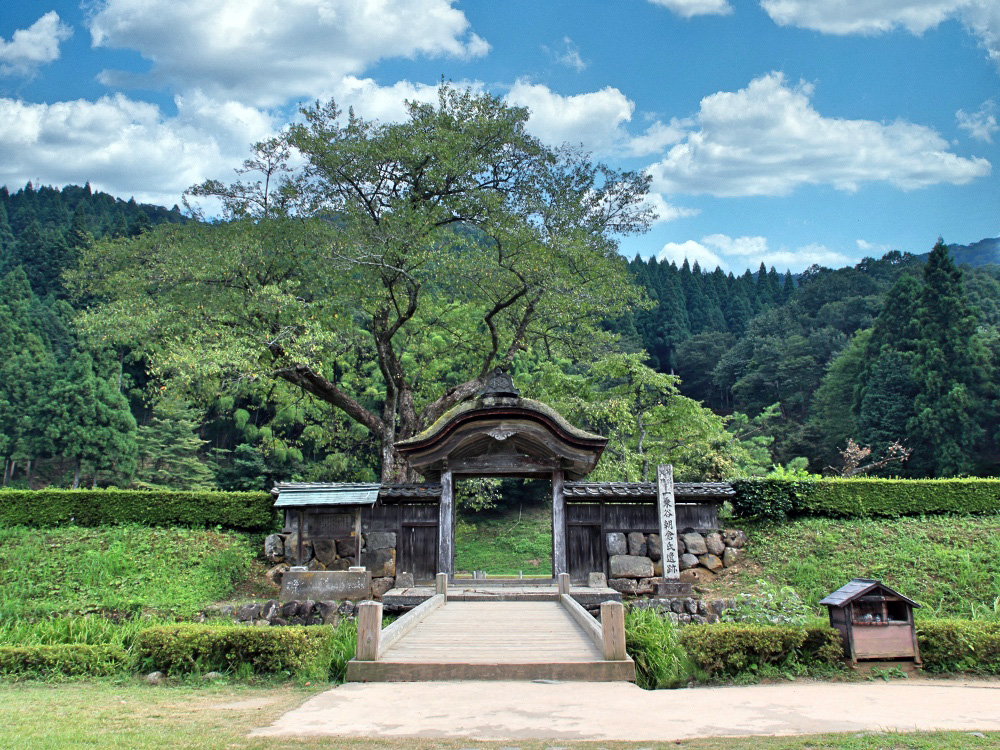
As such, the Ichijodani Asakara Clan Ruins provide an interesting insight into what was – more than 400 years ago – a thriving cultural and commercial center.
9 / OSHIMA ISLAND / all year round
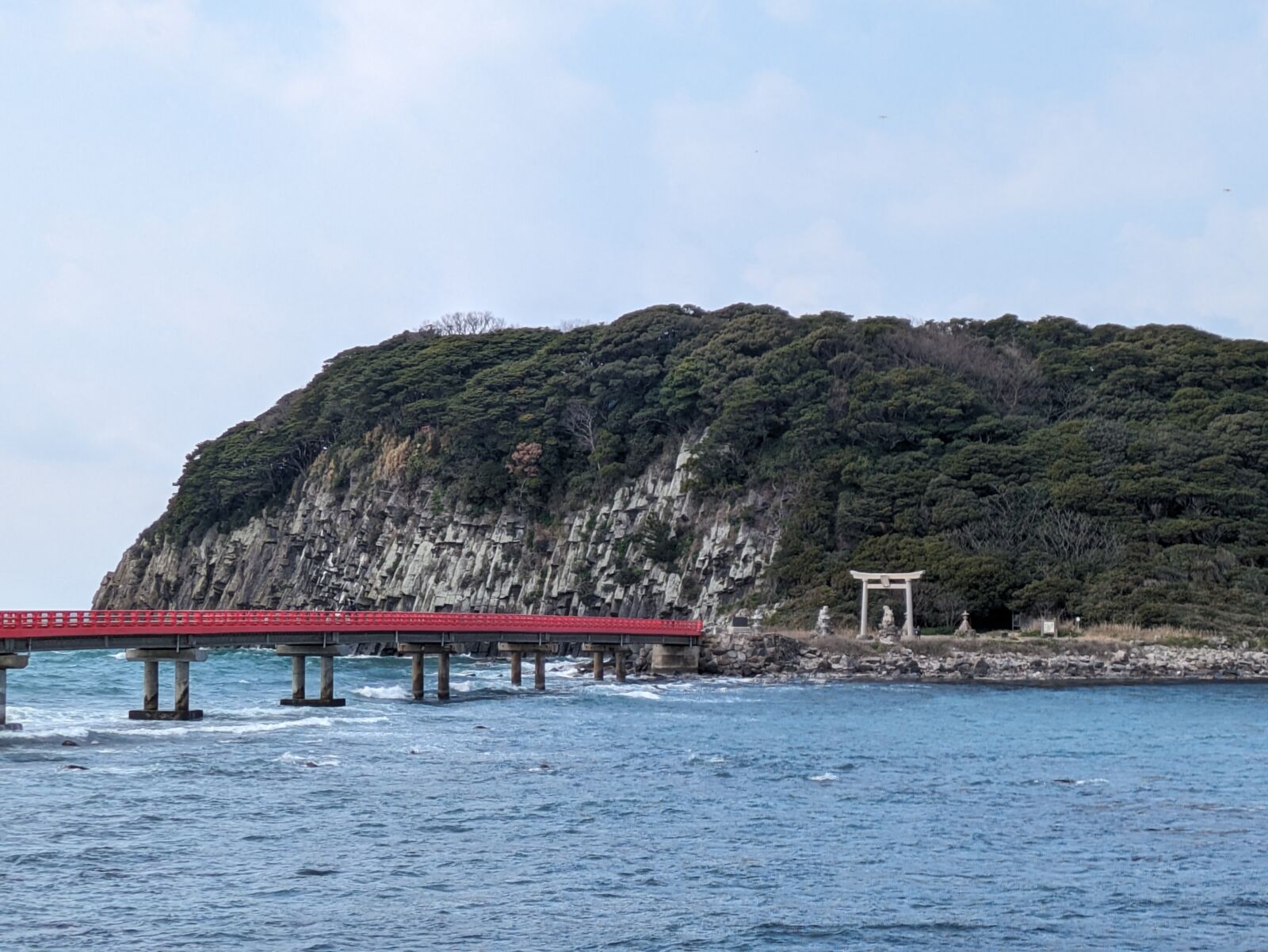
The northwest part of Fukui prefecture is famous for its dramatic coast, especially the Tojinbo Cliffs. Close by is Oshima Island with some equally impressive cliffs and rock formations. It isn’t just the shape of the land that is attractive but what is on it. The island also has a forest of unique trees often found in more tropical locations. The history of Oshima is quite interesting and as you walk across the bridge you can truly feel that you walking onto a sacred island. If you want to see Oshima as well as Tojinbo, Echizen Matsushima and Mikuni Port, join our tour!
1 Day Tour from Kanazawa: Fukui's Stunning Cliffs, Spiritual Island and Historical Port
- Spots:
- Pick-up:
- Drop-off:
10 / YOKOKAN GARDEN / all year round
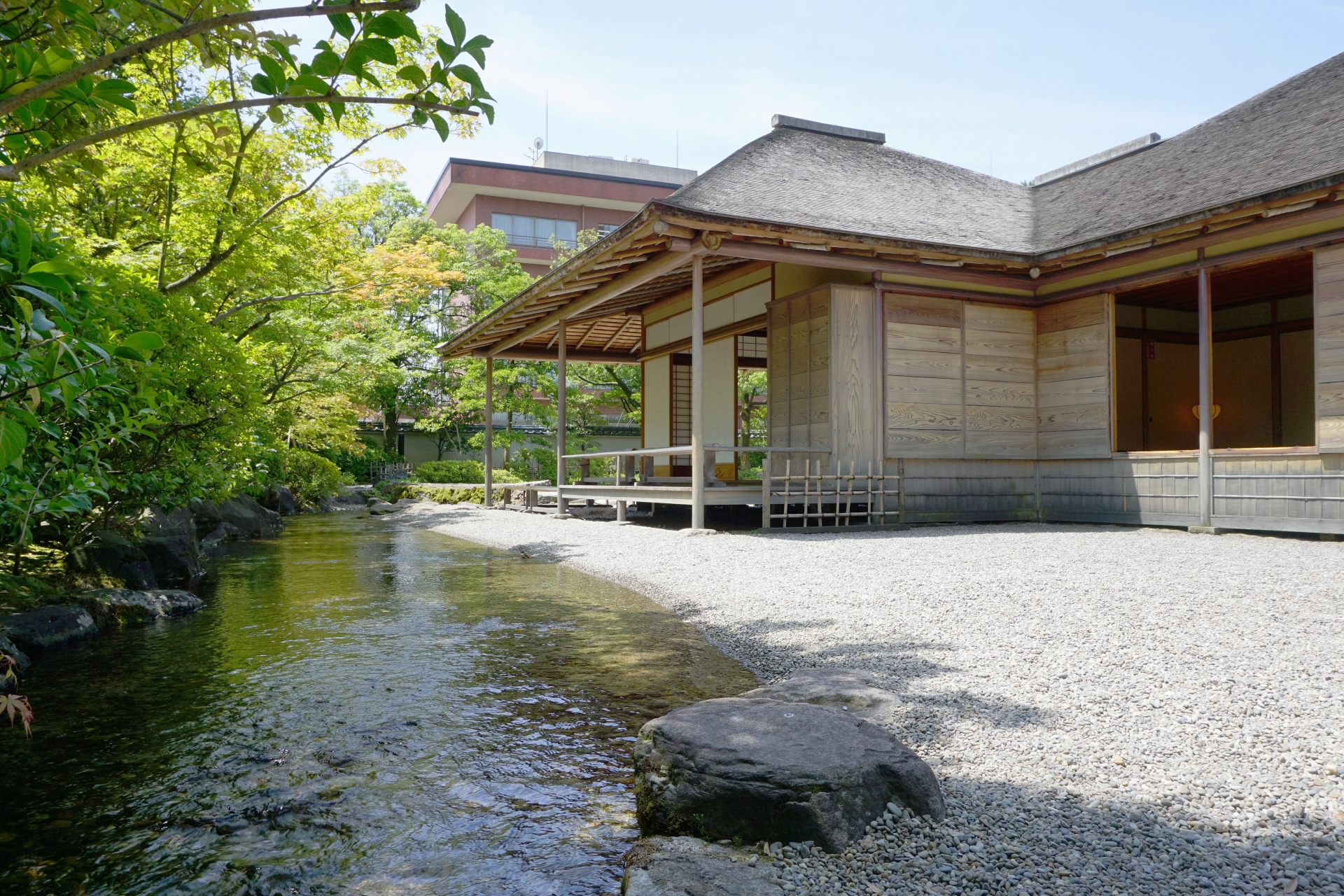
Sadly destroyed by air raids during World War II, Yokokan Garden and the Fukui Matsudaira Villa were thoughtfully restored in 1982 and are now regularly cited as one of Japan’s most beautiful gardens. As a former residence of the Matsudaira clan, the villa and gardens hosted guests of high status and tea ceremonies. The gardens feature a large pond that surrounds the villa, giving the impression that is it floating in water. The garden is particularly beautiful in autumn, as leave change color and turn the surrounding landscape red, gold, orange and brown.
11 / MIKATA FIVE LAKES / all year round
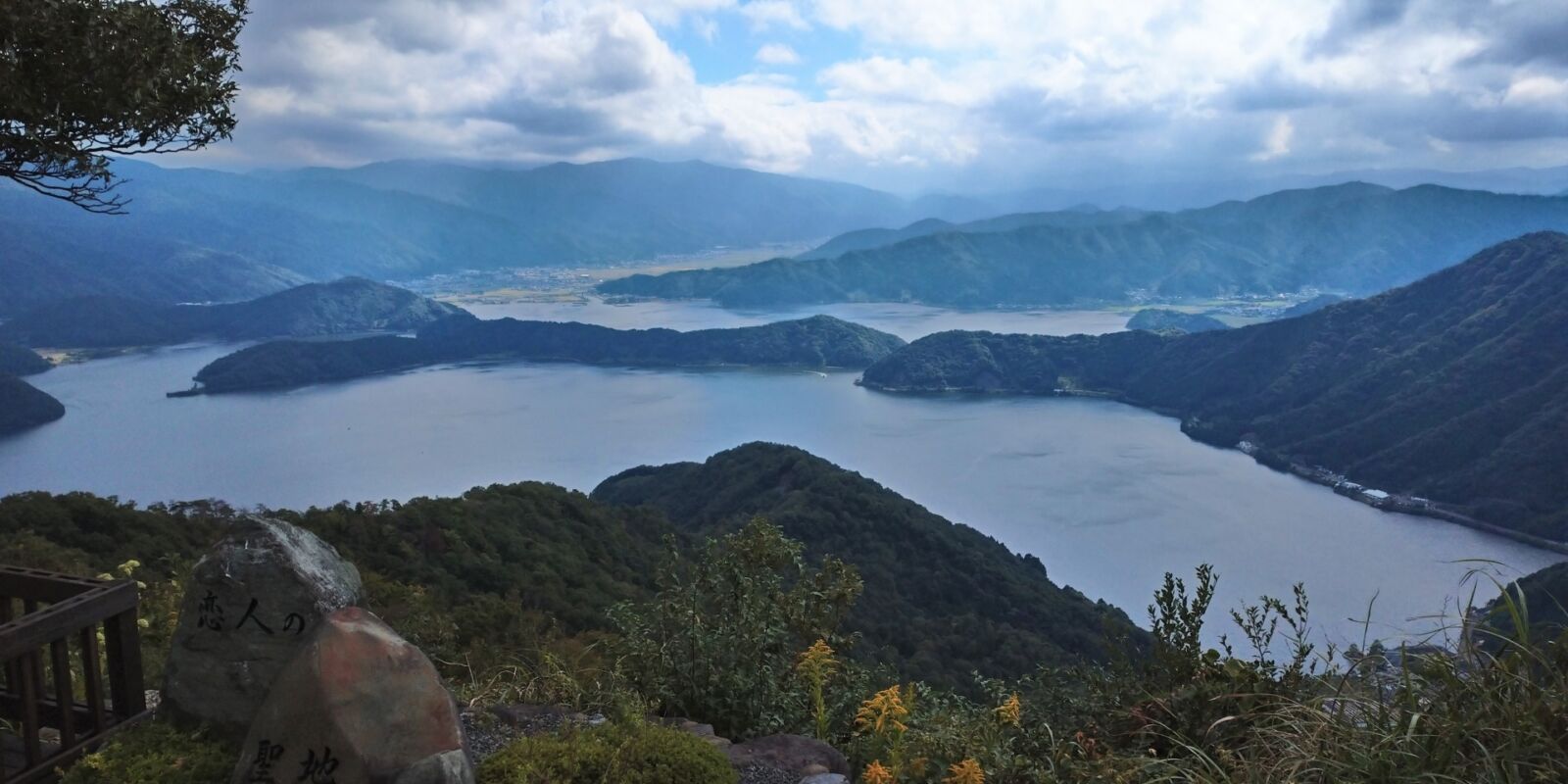
West of Tsuruga, the last stop on the Hokuriku Shinkansen, the lakes in the mountains with the backdrop of the Sea of Japan is truly a unique environment. Some of the lakes are freshwater and some are brackish but they are all beautiful. Here you can enjoy fishing, bird watching, light hiking or just relaxing and enjoying the view. There is a stylish terrace style cafe at the top of one of the mountains, only accessible by cable. This is one location that is definitely not often visited by foreign tourists despite its awesome views.
12 / FAMOUS FOOD OF FUKUI / all year round
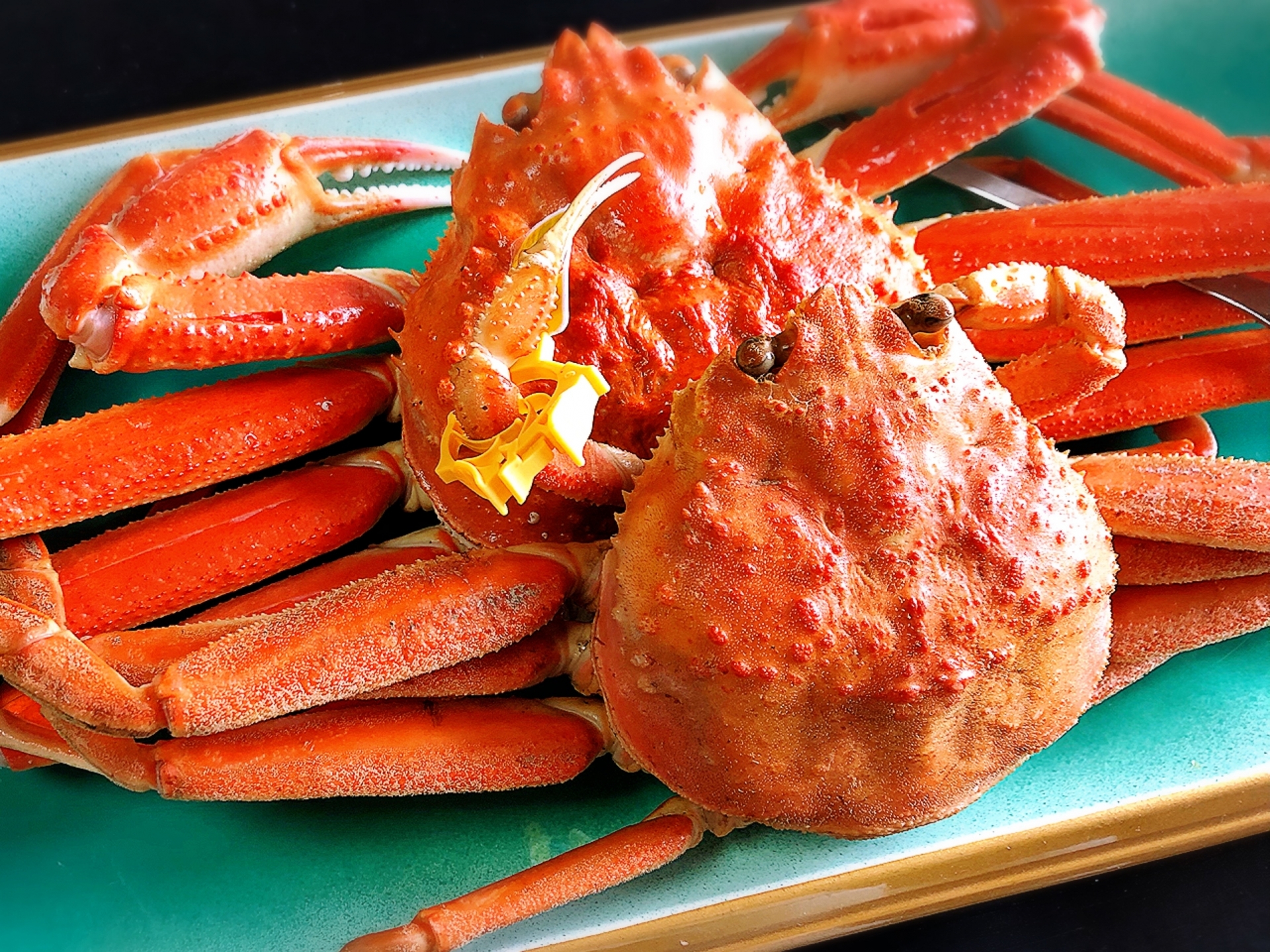
One of the most enjoyable parts of travelling around Japan is the fantastic food served-up all over the country. When in Fukui, make sure to try these local specialties:
Echizen Gani (Echizen Crab)
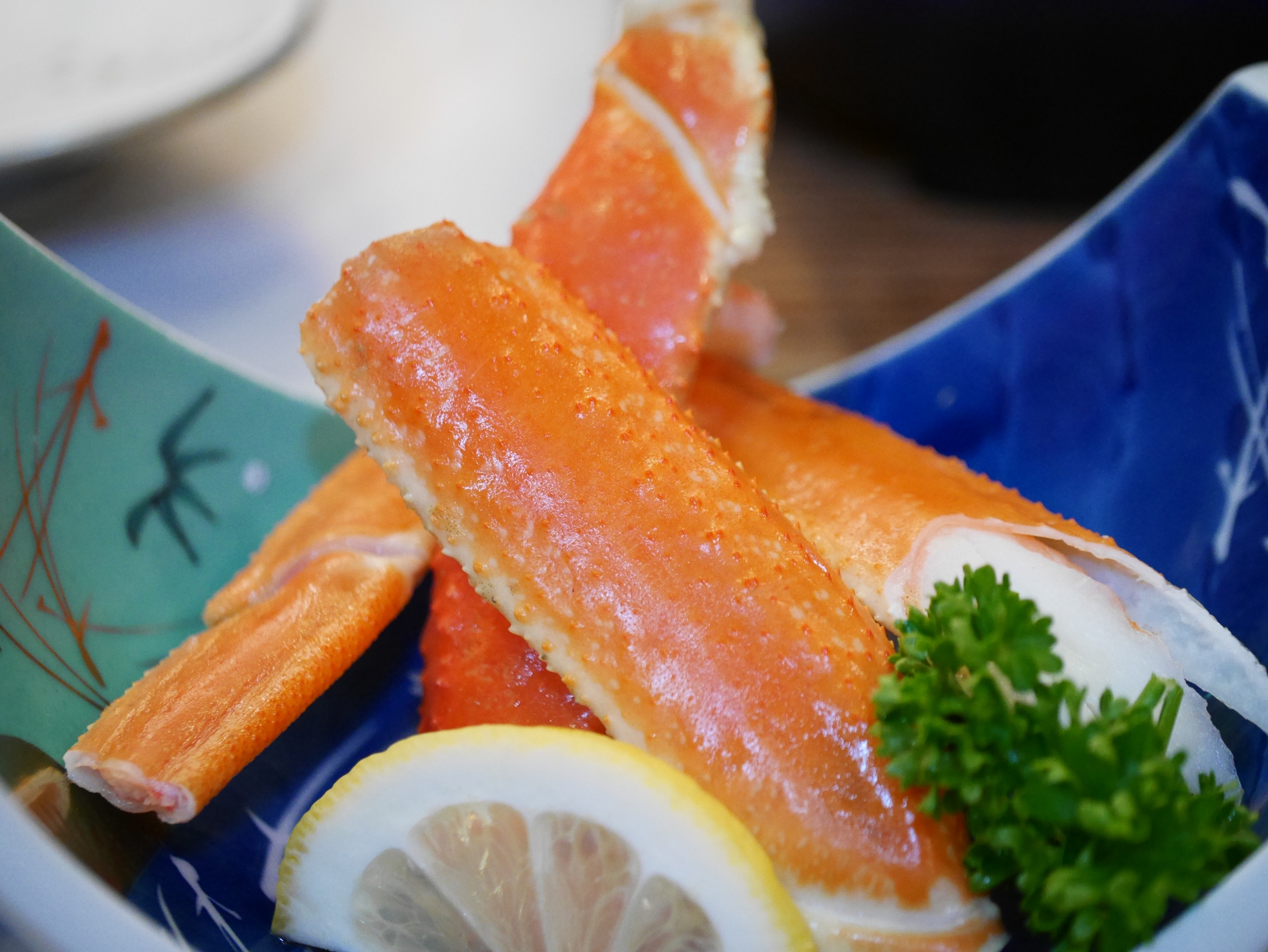
Japanese love crab and Echizen Crab is considered some of the best! The meat has a sweet flavour and appealing texture, and when boiled, the crabs turn a bright orange-red colour. Fukui’s crab-fishing industry is one of the oldest, if not the oldest, in Japan and its highly-desired crabs are served to the Japanese Royal Family. Known as a type of winter or ‘snow crab’, Echizen Gani is best enjoyed during the fishing season, from November to March with the crab prepared a variety of ways including sashimi, grilled, boiled, shabushabu and more.
Saba no Heshiko (Dried Mackerel)
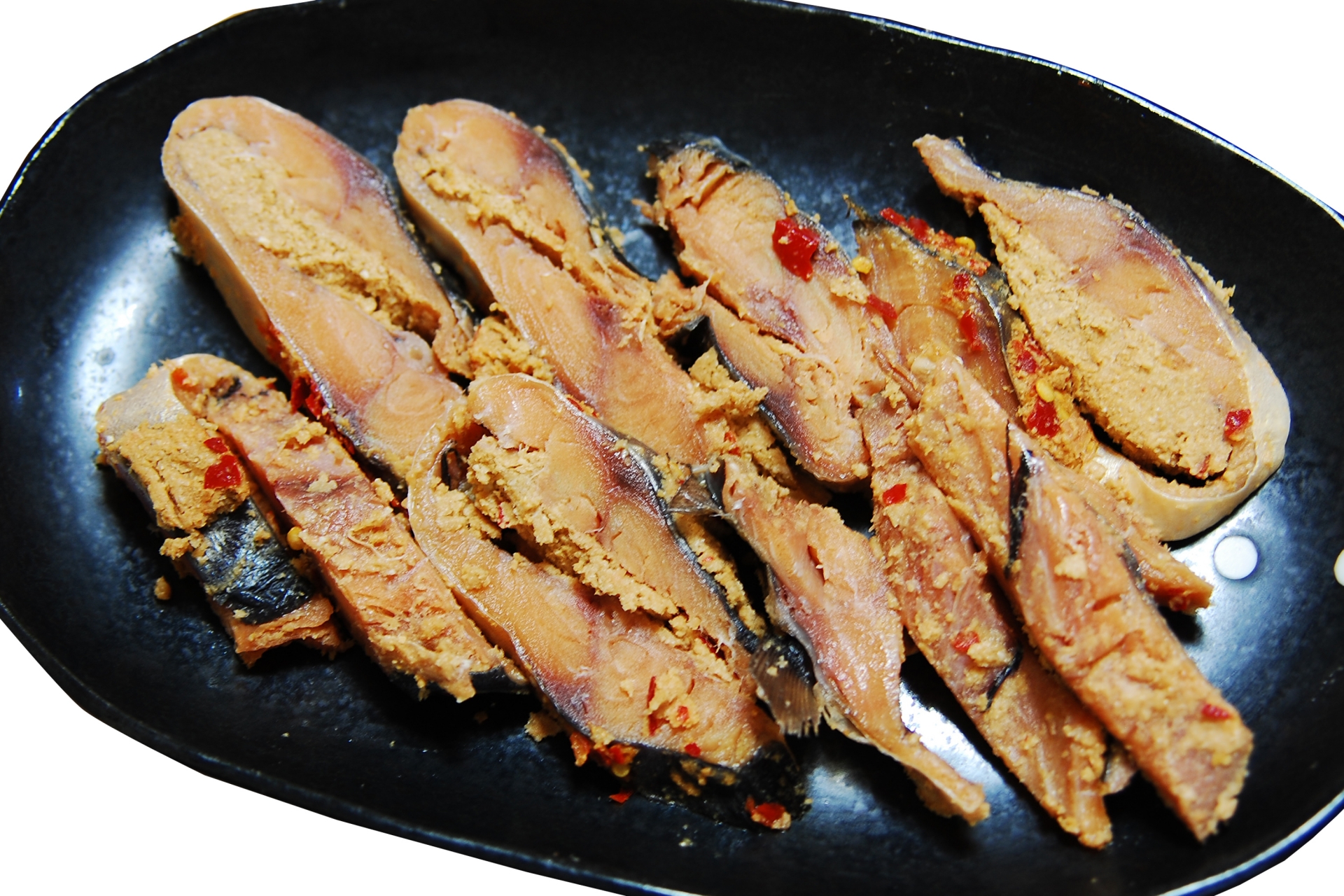
Another traditional Fukui dish dating back to the Edo Period, Saba no Heshiko is a type of fermented mackerel, produced by removing the internal organs of the fish, packed with bran and salted. Left to then ferment for up to one year, the fish is then washed and cleaned before serving, thinly sliced and possibly grilled before serving atop fresh rice or as a side dish, enjoyable with sake.
Echizen Oroshi Soba (Buckwheat Noodles)
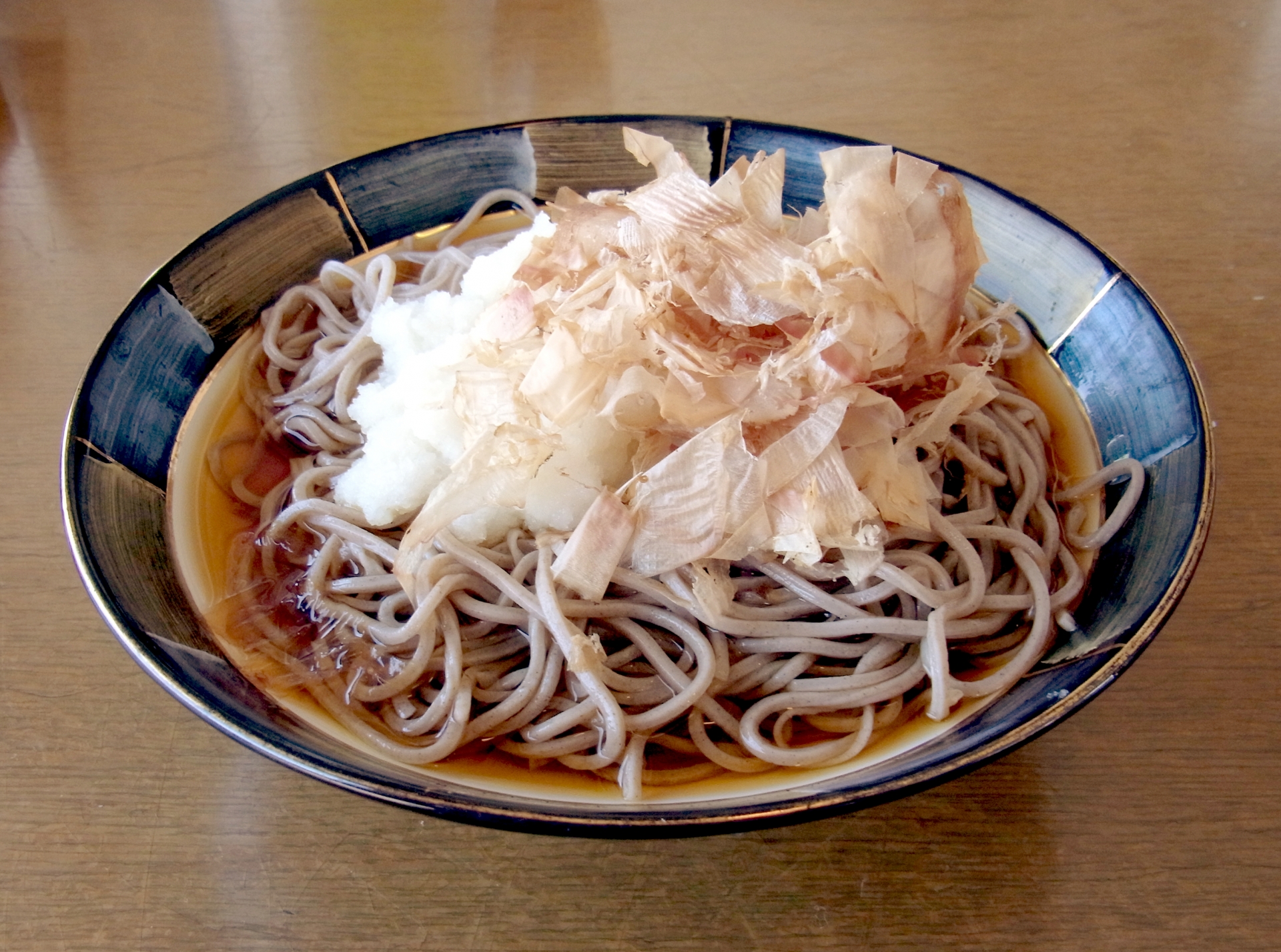
Anyone living in Japan or traveling here will quickly notice how ubiquitous soba (buckwheat noodles) is throughout the country, and how just as often, each region claims theirs as the best. In truth, there’s lots of good soba everyone including Fukui and its local Echizen Oroshi Soba. The noodles are combined with spicy grated radish, chopped green onions and bonito (fish flakes) in a cold broth. Very healthy and with a distinct taste, soba is always a light and enjoyable meal option.
13 / KANAZAWA / Best: Spring & Fall
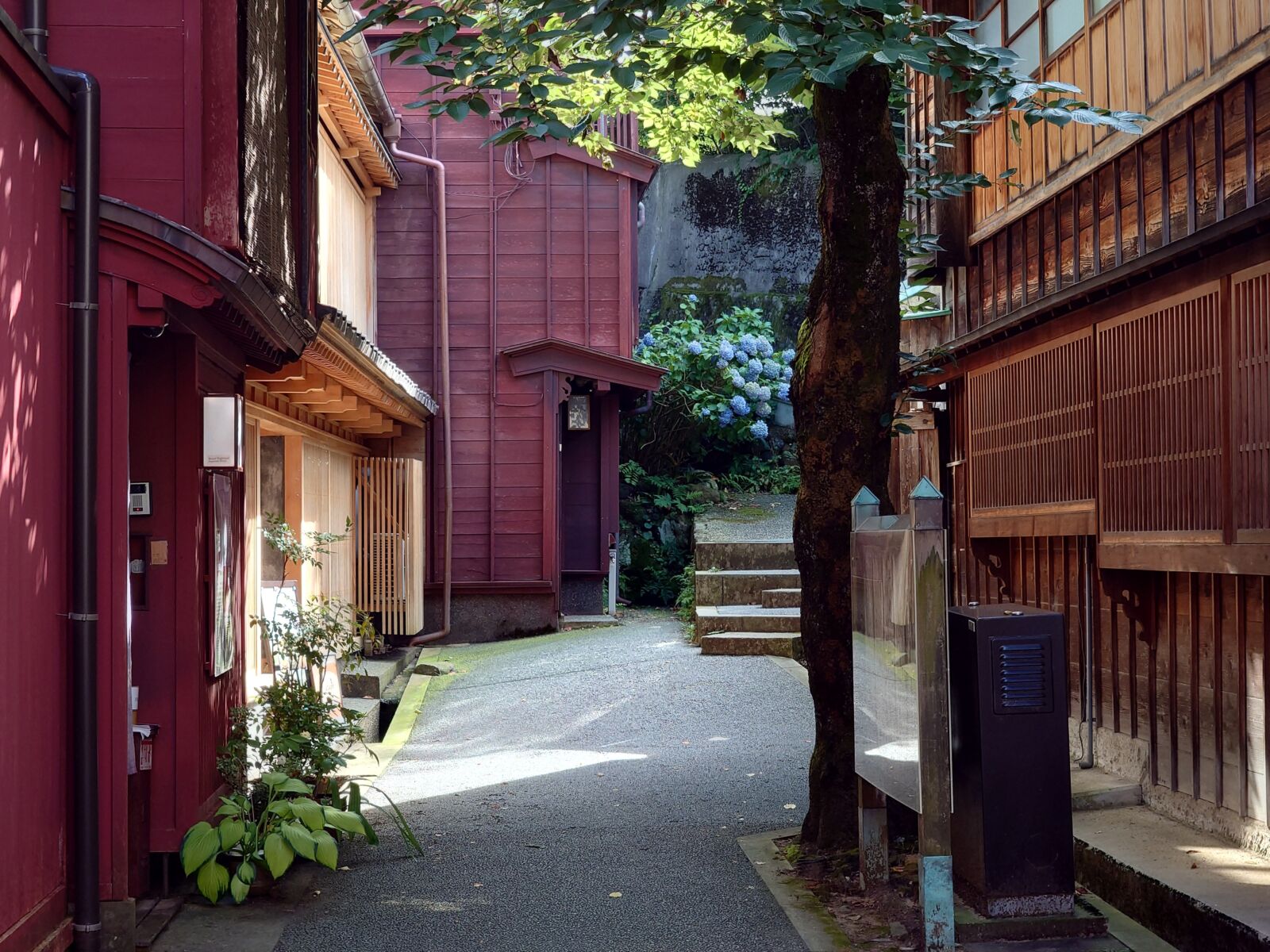
Kanazawa is the capital of Ishikawa Prefecture and situated along the Japan Sea coast approximately two hours northwest of Takayama. Kanazawa is perhaps most famous for Kenrokuen Garden, which is one of Japan's three great gardens, and it is said to have been created by the feudal lords that ruled the domain in the 1600's. Having escaped the bombings of World War II, there are still many areas of the city that remain relatively untouched since ancient times including the former samurai district of Nagamachi and the Nishi-Chaya geisha district - a city full of fantastic attractions both historic and modern.
Jump back in time with one of our tours that gives you a good sweep through all the major attractions. Walk through history in the Higashi Chaya 'Geisha' District and Nagamachi 'Samurai' District, stroll through a great garden, Kenrokuen, like the daimyos of times past and sip matcha while overlooking a beautiful garden. Live tradition in Kanazawa with us.
Day Tour in Kanazawa: Glamor of the Geisha, a Daimyo's Villa and a World-Class Garden
- Spots:
- Pick-up:
- Drop-off:
Kanazawa Walking Tour: Experience Gold Leaf, Japanese Sweets and Ninja Stars
- Spots:
- Pick-up:
- Drop-off:
14 / SHIRAKAWA-GO, GOKAYAMA & INAMI / best: June to November
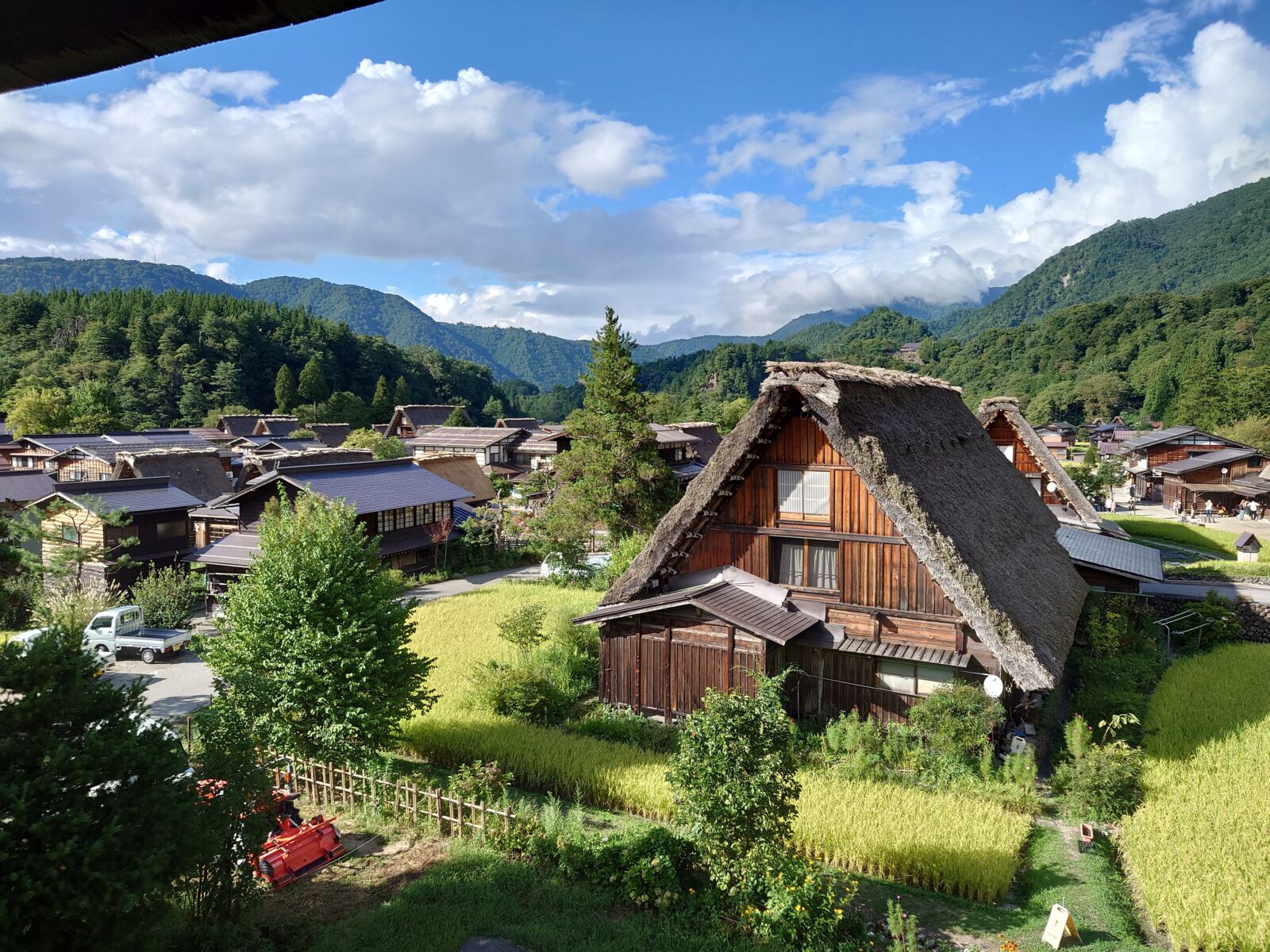
Easily accessible by bus from Kanazawa Station or train via nearby Toyama Station, the villages of Shirakawa-go and Gokayama were inscribed on the World Heritage list in 1995. Actually consisting of three villages, they are known for this distinctive ‘gassho-style’ thatch-roofed houses set in a beautiful alpine setting of rice fields and high mountains above. World Heritage-listing has ensured that the villages are hugely popular with both domestic and international tourists but don’t let that put you off. The villages are well-worth visiting and walking away for the central area of the main village of Ogimachi will quickly leave you unencumbered by other visitors. If you really want to avoid the crowds, consider heading to the other villages of Suganuma and Ainokura. Much smaller than Ogimachi they are also far less visited and offer a peaceful experience of these important rural hamlets.
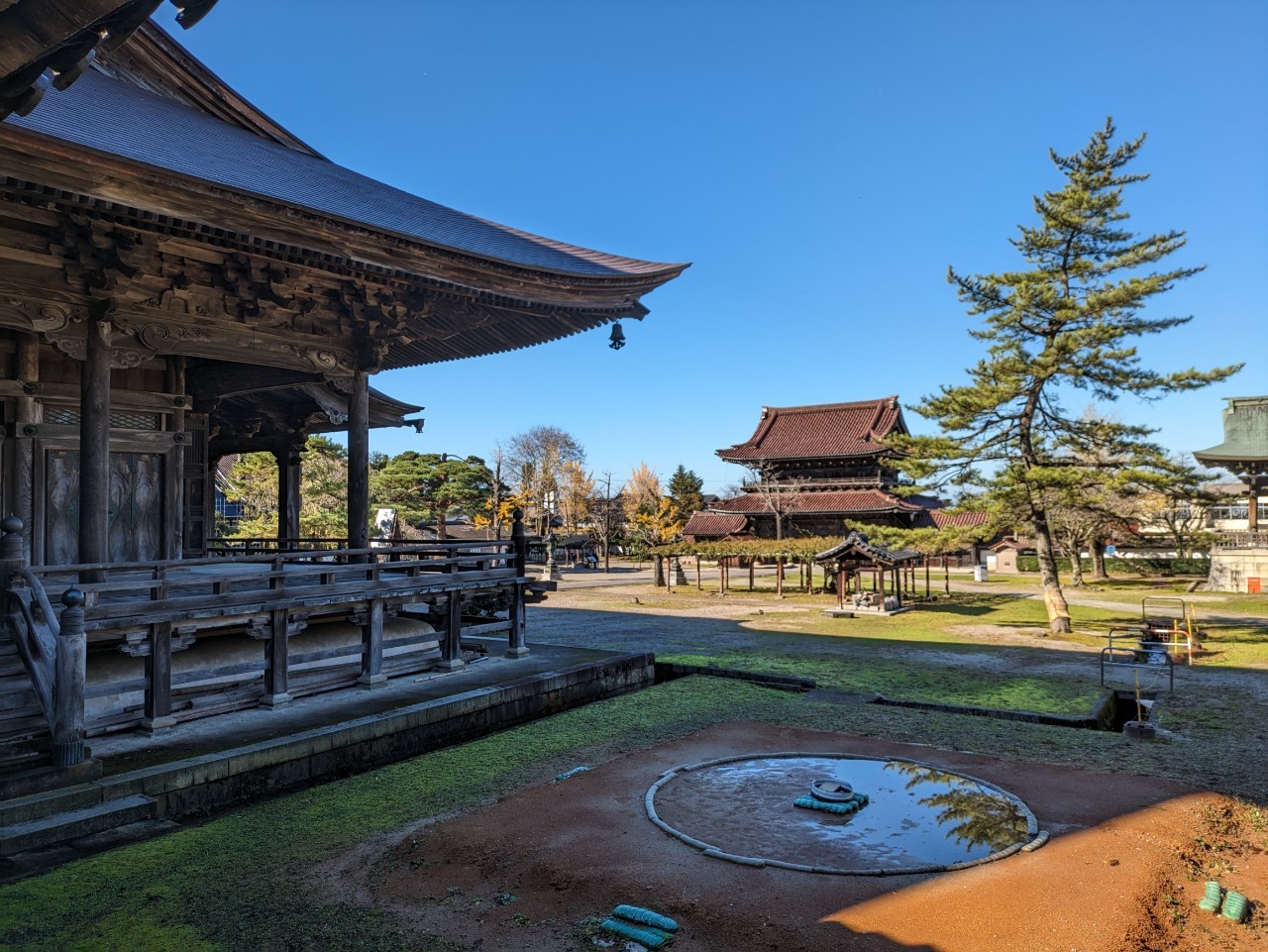
Inami is famous for its woodcarving and there are over 100 professional traditional woodcarvers in the area, mostly on the main street. That main street leads towards the centerpiece of Inami, Zuisenji Temple and has many beautiful wood-carvings. Not only in the temple itself but in the shops around it. If you search, there are over 30 cute wooden cats around the town. Zuisenji Temple is a magnificent example of master woodcarving, with some of the carvings being over 200 years old.
It is often difficult to combine Shirakawago, Gokayama and Inami when traveling on your own. Try one of our tours where you can see these three villages and can even end the tour in Takayama!
Best Selling
1 Day Tour from Kanazawa: Shirakawa-go, Gokayama and Wood Carving Village
- Spots:
- Pick-up:
- Drop-off:
15 / TAKAOKA / all year round
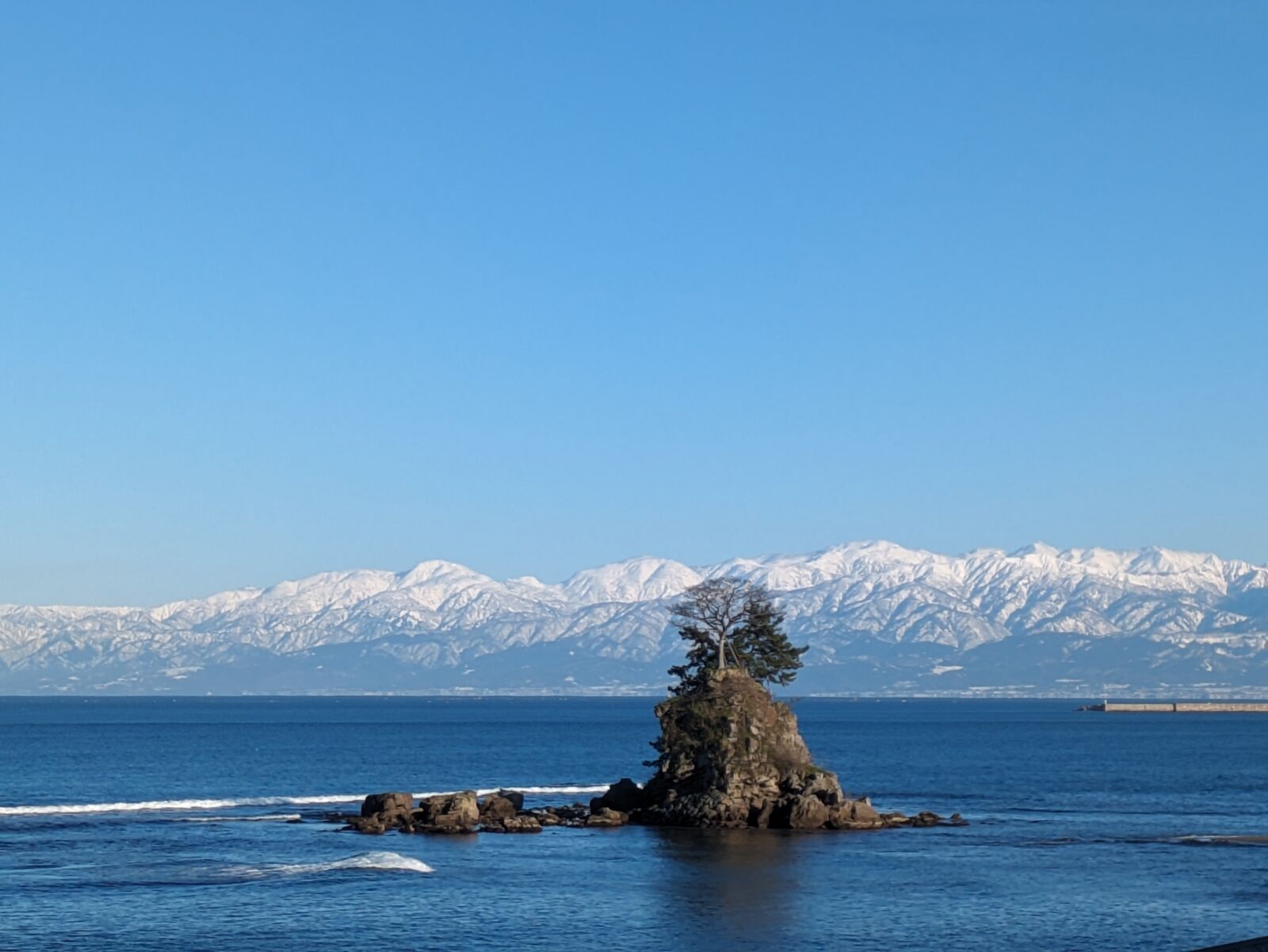
About 45 minutes north of Fukui on the shinkansen and abutting the remarkable Toyama Bay, Takaoka is a city with a diverse history of over 350 years. Known as the “Kitchen of Kanazawa”, it produced large amounts of food, metal working and pottery. As the second city of the Kaga Domain, much wealth was poured into the city, mostly in the form of building great temples. Two of those great temples, Zuiryuji and Shokoji, still remain and are considered National Treasures. The views across the Toyama Bay of the Tateyama mountains are truly stunning from Amaharashi. The small rocky islands against the snow-capped mountains are especially beautiful.
If you are looking for a way to see it all, join us for our Takaoka tour. You can even do some of the famous Takaoka metalworking and take it home afterwards.
1 Day Tour from Kanazawa: Takaoka's Temples, Metalworking and Mountain Views
- Spots:
- Pick-up:
- Drop-off:
1 Day Tour from Kanazawa: Beautiful Amaharashi, A Big Buddha and the Shokawa Valley River Cruise
- Spots:
- Pick-up:
- Drop-off:
16 / TAKAYAMA / all year round
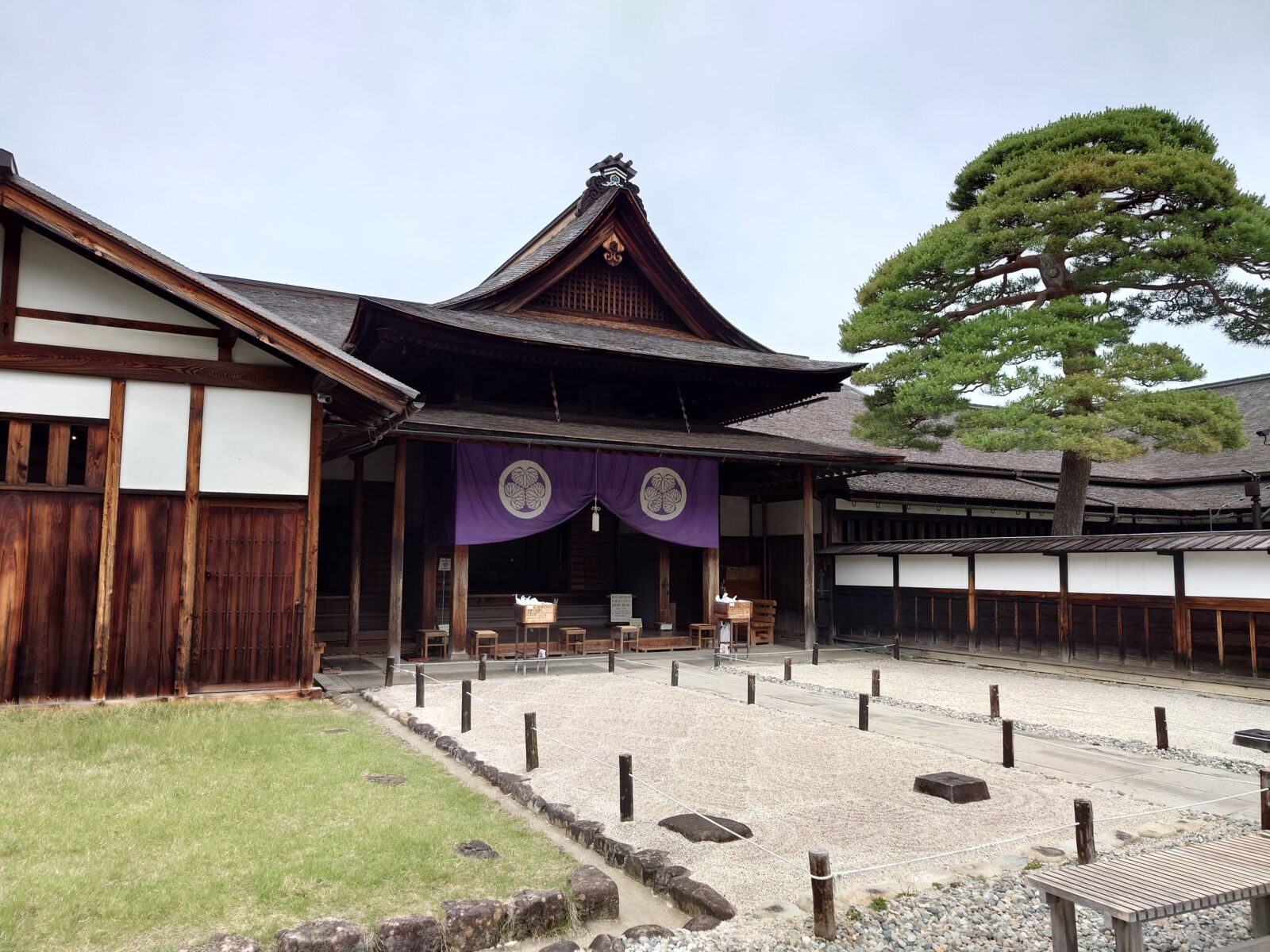
Around one hour from Shirakawa-go and Gokayama, the historic old town of Takayama is another popular destination. Famous for the excellent preservation of its Edo Period (1603-1868) historic center, Takayama draws large crowds. Much like Shirakawa-go, be prepared to share the streets with many other visitors. Try to avoid the middle of the day - between 11:00 and 15:00 - when large tour buses arrive and crowd the small historic area with tourists.
Join one of our tours and dive deep into the history of this traditional gem in the mountains. Go beyond just the center of town and wind your way around the beautiful streets to temples and shrines at the base of the ever-present eastern mountain.
1-Day Tour in Takayama: Immerse in Takayama's Rich History and Temples
- Spots:
- Pick-up:
- Drop-off:
Recommended
1-Day Tour from Takayama: Hida's Hidden Gems - Hida Folk Village, Limestone Caves and the Shinhotaka Ropeway
- Spots:
- Pick-up:
- Drop-off:
17 / GUJO HACHIMAN / all year round
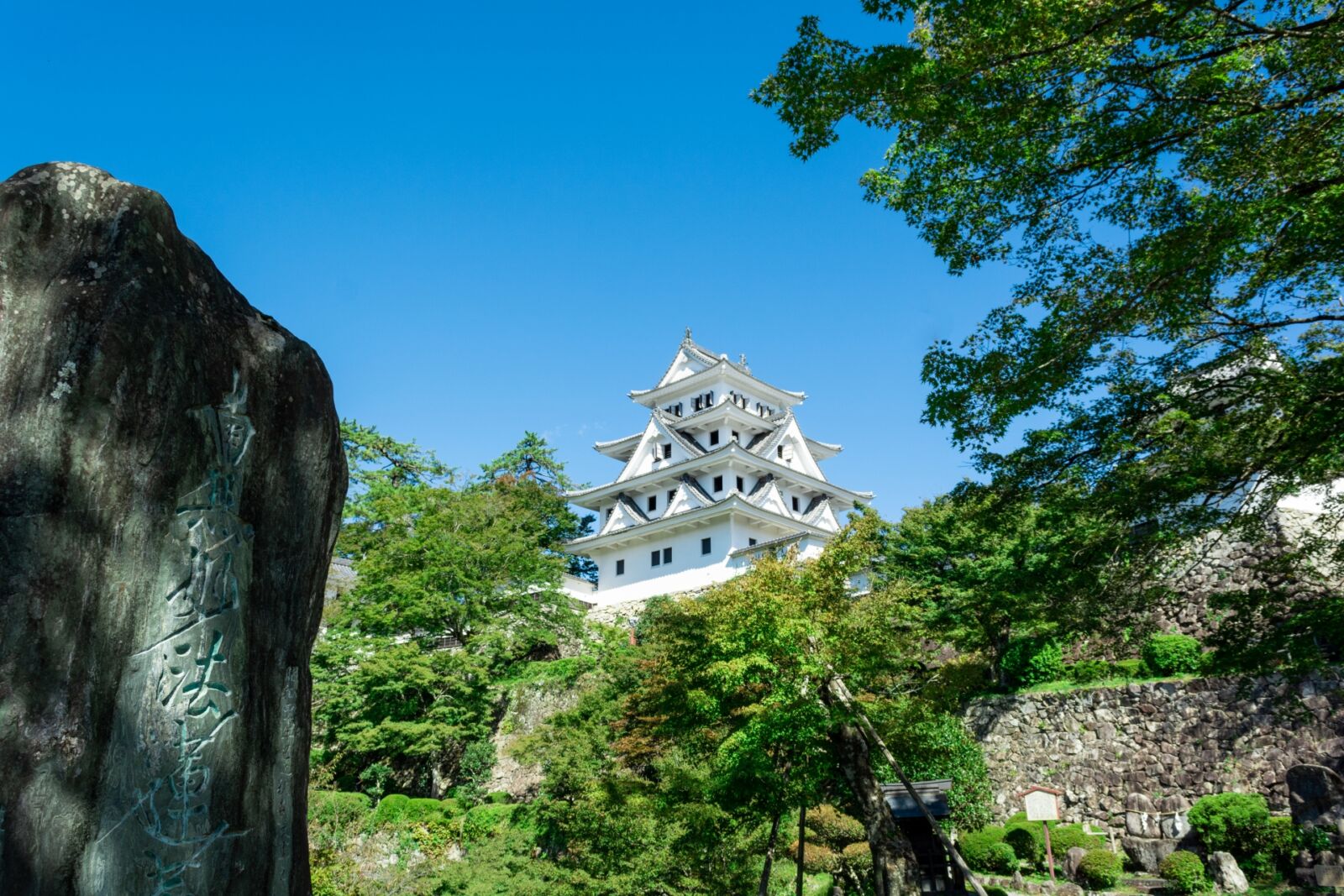
Only one and a half hours southwest of Takayama, this town is known for its traditional crafts, stunning castle and unique dances. Gujo Hachiman is a city that lives its traditions and you can experience them for yourself through the museums and workshops that are throughout the city. The unique art of making food replicas drives the local economy and you can make your own realistic food replicas in the town. The castle is also something not to miss. The wooden interior is nice but the views that it affords of the surrounding town surrounded by small mountains is the epitome of a Japan townscape. Gujo Hachiman is a small town that maintains many traditional arts and dances but also has that unique twist with its food replica art.
Step back in time with one of our full day tours. Explore the historic streets, marvel at the craftsmanship, and be enchanted by the town’s natural beauty.
1-Day Tour from Takayama: Gujo Hachiman -History, Traditions and Crafts
- Spots:
- Pick-up:
- Drop-off:
1-Day Tour from Nagoya: Gujo Hachiman’s Crafting Culture & Castle in the Clouds
- Spots:
- Pick-up:
- Drop-off:
18 / TATEYAMA-KUROBE ALPINE ROUTE / all year round
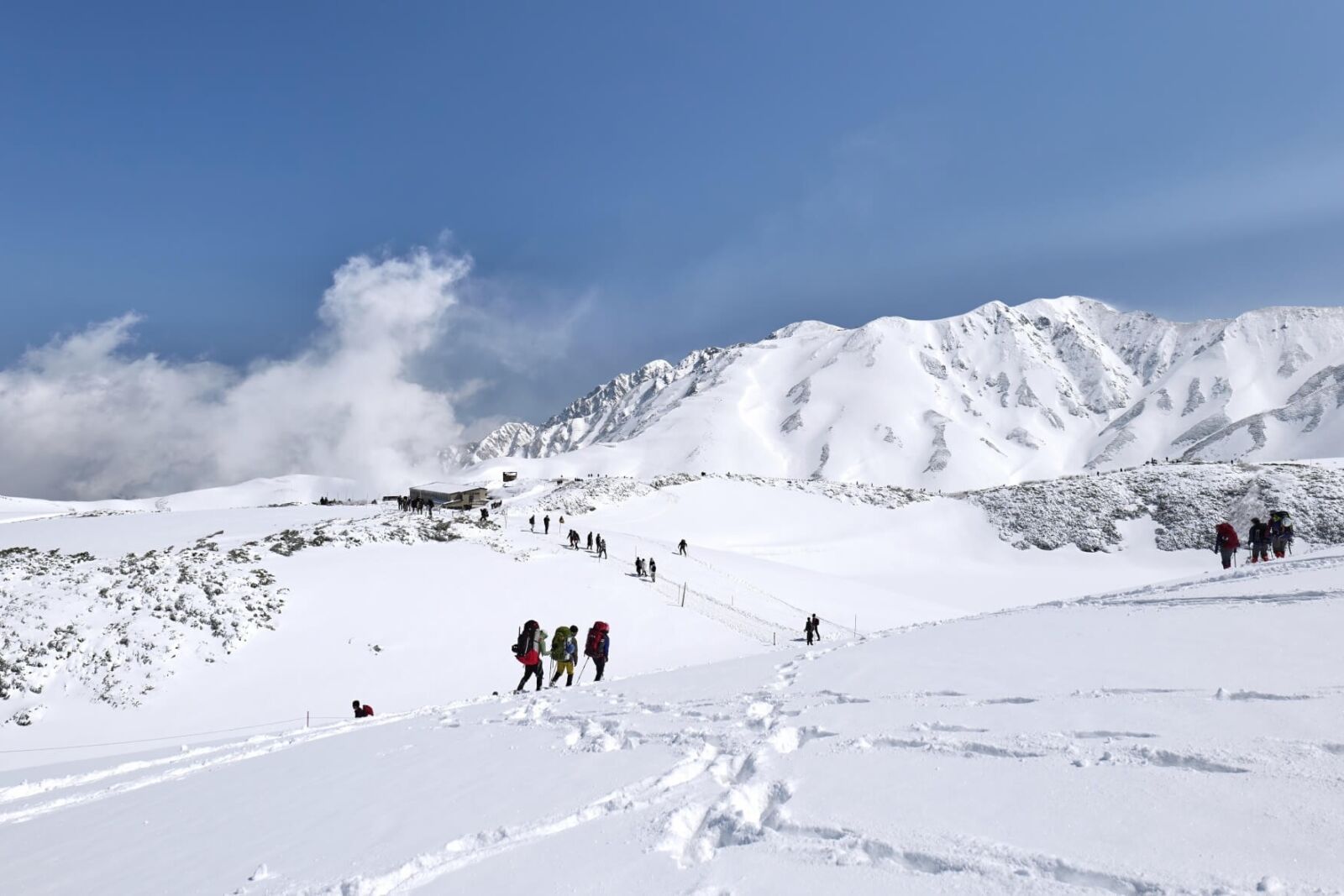
About a 2 hour journey north and then east of Fukui, it’s an relatively straightforward journey to the Tateyama-Kurobe Alpine Route. Heralded as one of Japan’s best experiences, traversing the Alpine Route takes approximately 6 hours without allowing for time to stop and enjoy all of its stunning sights. In reality, undertaking a visit to the Alpine Route is therefore a full-day activity. Visitors can start from Toyama via Tateyama Station or Nagano via Ogizawa Station, and choose to finish on the other side or return to their point of origin. A series of mountain transports including trolley buses, cable cars, a ropeway, and coaches transport visitors to and from Murodo Station – which at 2540 meters is the highest station in Japan.
Join us from either the Toyama side or the Nagano side with the tours below!
New Tour
1 Day Tour from Kanazawa & Toyama: Tateyama Alpine Route Snow Wall and Mysterious Valley
- Spots:
- Pick-up:
- Drop-off:
Popular
[Spring Only] 1-Day Tour from Nagano: Snow Walls of Tateyama-Kurobe Alpine Route
- Spots:
- Pick-up:
- Drop-off:
19 / KUROBE GORGE RAILWAY / all year round
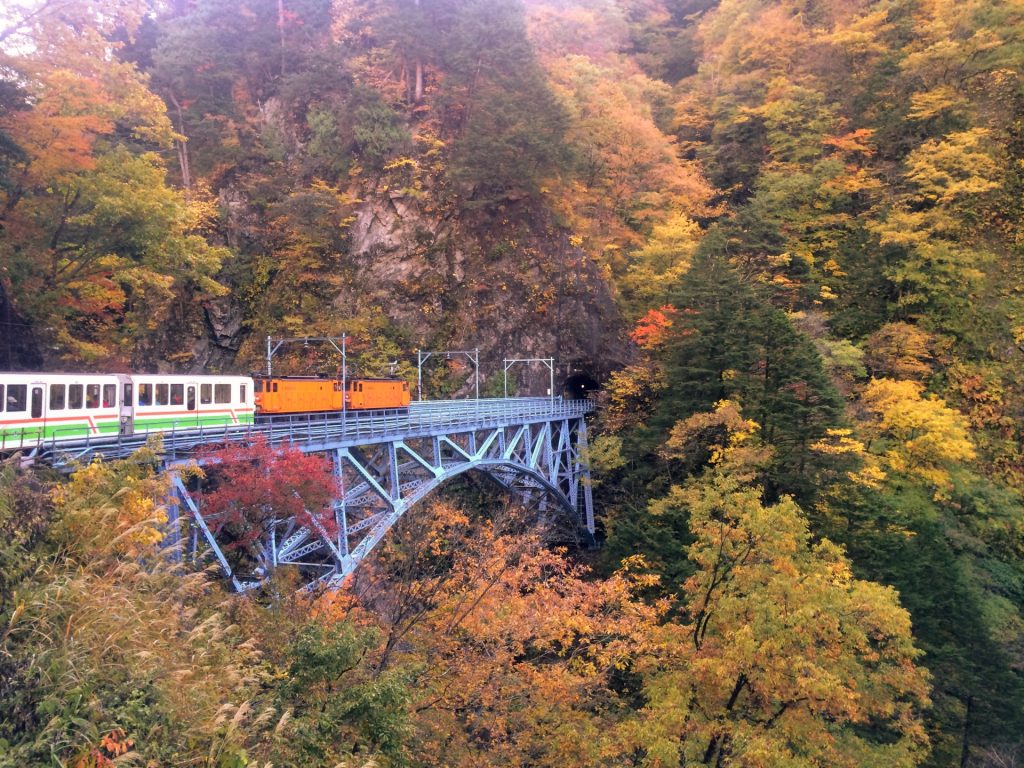
About two hours north and east of Fukui lies a small beautiful onsen town sitting at the entrance of an even more amazing sight, Japanese deepest V-shaped gorge, Kurobe Gorge. In this area you can see foot baths and healing buddhas, ride on the trolley train across spectacular gorges and finally walk in nature with onsen water rivers. If you are more into Taisho-era architecture than the streets of Unazuki Onsen are more for you. Stroll in a yukata as you take a dip in the famous waters. City and scenery, bridges and buddhas, trolley trains and quaint walks, fully enjoy a lesser traveled part of Japan in Unazuki Onsen and the Kurobe Gorge!
1 Day Tour from Kanazawa: Kurobe Gorge and Unazuki Onsen
- Spots:
- Pick-up:
- Drop-off:
20 / LAKE BIWA & HIKONE / all year round
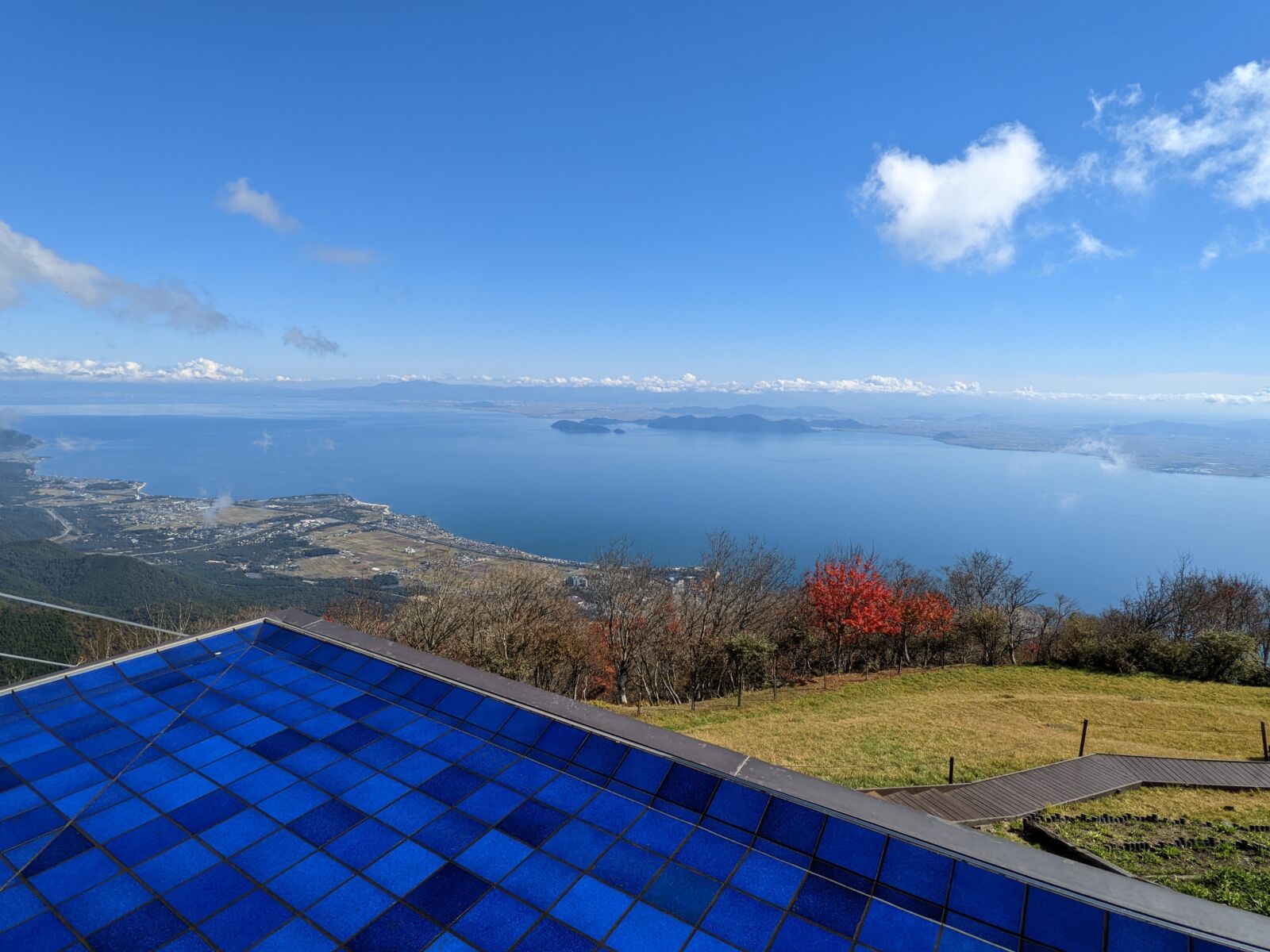
On the way to or from Fukui to Nagoya or Osaka/Kyoto, you almost have to pass through this critical crossroads of Japan. Beautiful views of the lake can be seen from all sides, especially from the mountains on the west side and the castle on the east side. That castle, Hikone Castle, is one of only twelve castles in Japan with an original keep from the Edo period. In the middle of the lake is an island, Chikubu Island, that sits peacefully with its enchanting shrine, waiting for you to pay it a visit.
1-Day Tour from Nagoya: Castles and Canals in Hikone and Omi Hachiman
- Spots:
- Pick-up:
- Drop-off:
WHERE TO STAY IN FUKUI
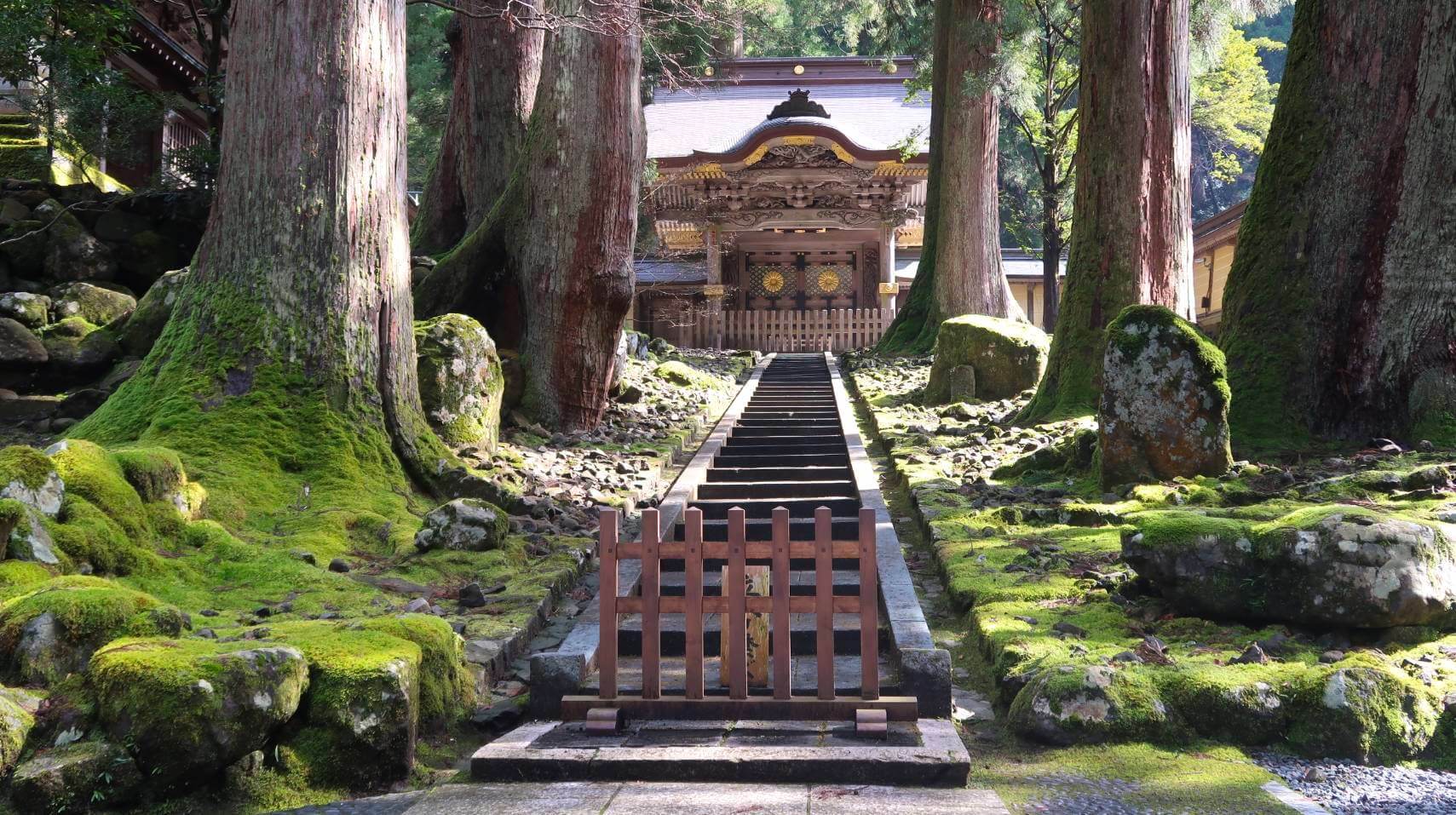
Most international visitors heading to and from Fukui will make the journey using the train. The area around Fukui Station is therefore the most convenient place to look for accommodation while those heading to nearby Eihei-ji Temple, can also considered booking a guesthouse nearby:
FUKUI STATION AREA
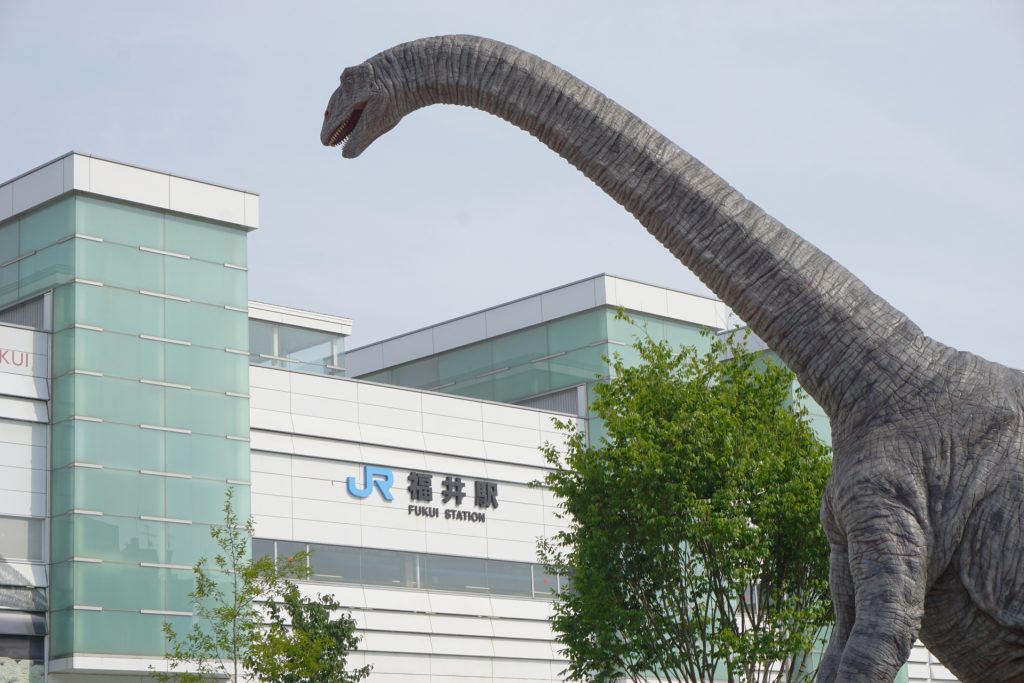
The area around Fukui Station has a decent number of accommodation options, mostly large Western-style hotels. Local buses and trains running from the station connect it with the region's most popular attractions including the Fukui Prefectural Dinosaur Museum and Daihonzan Eihei-ji Temple. For accommodation listings, see our 'Fukui Station Area' hotel page.
EIHEI-JI TEMPLE AREA
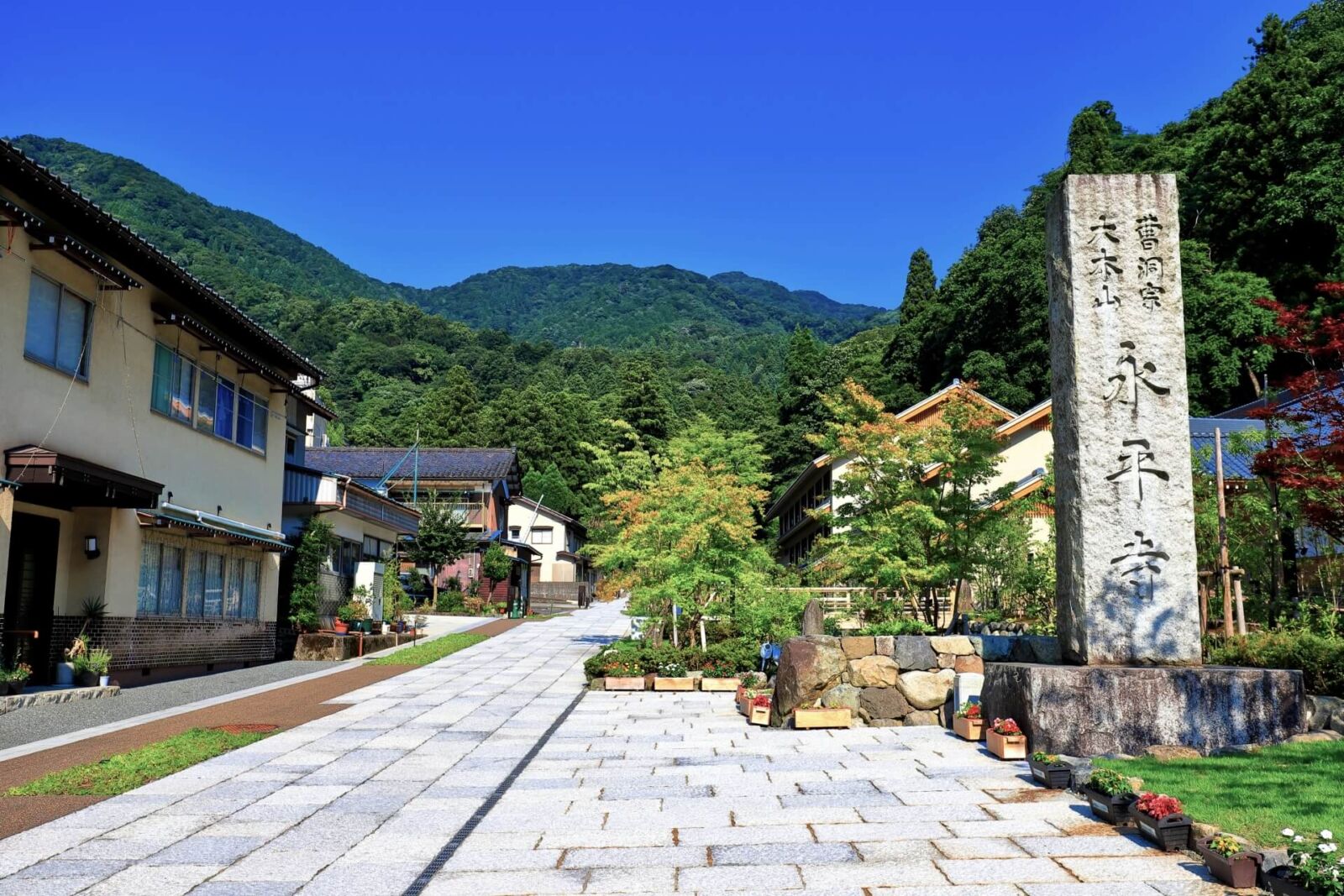
One of the most rewarding destinations in not just Fukui but all of Japan, Daihonzan Eihei-ji Temple - or more commonly referred to simply as 'Eihei-ji' - is easy to reach using a local bus or train line from Fukui Station. Set in a beautiful forested area, the temple complex is sprawling and is adjoined by a small but pleasant town. In that area you'll find a couple of accommodation options including traditional guesthouses - a good option for travellers who want to take their time and enjoy one of Japan's most beautiful temples. For accommodation listings, see our 'Daihonzan Eihei-ji Temple Area' hotel page.
HOW TO GET TO FUKUI
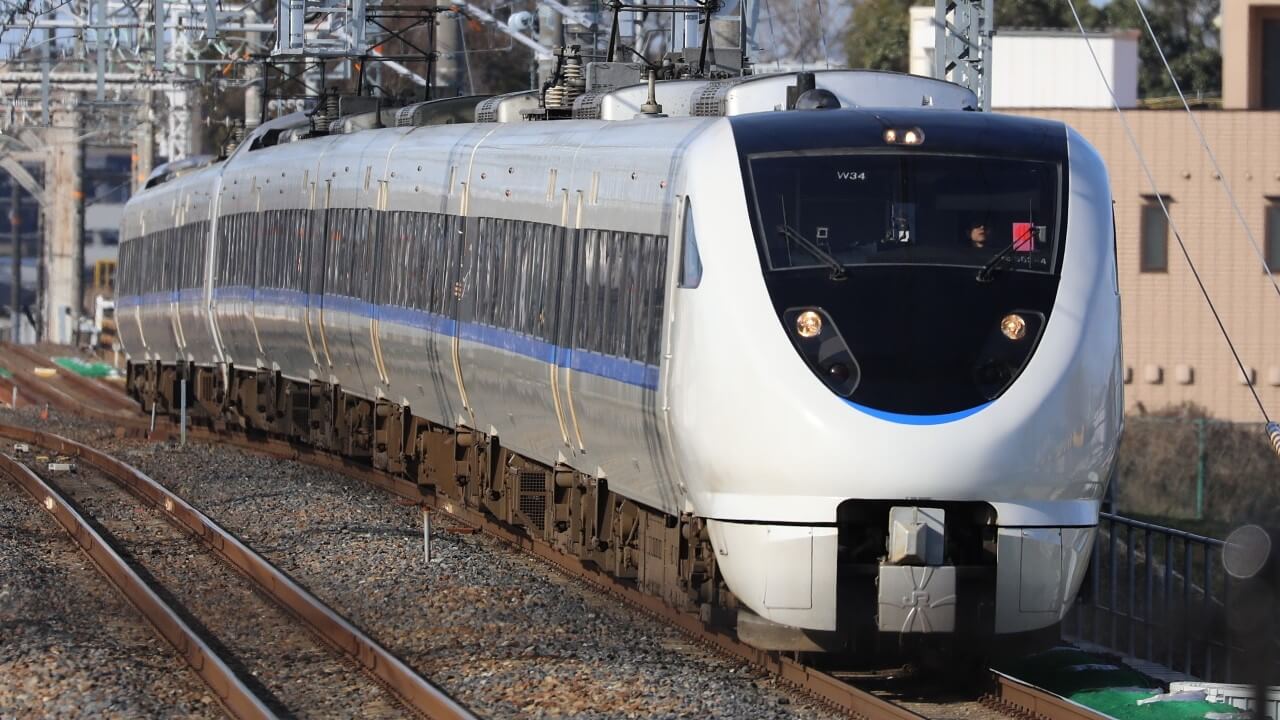
Fukui Station is a stop on Limited Express 'Thunderbird' services running from Osaka to Kanazawa via Kyoto making it easy and fast to reach from any of those cities. It takes time to reach Fukui from Tokyo but the journey is simple, requiring only one transfer at Kanazawa. For information on how to get there, see our 'How To Get To Fukui' page.
BOOK WITH US! NAGANO’S NO.1 TOUR & CHARTER OPERATOR
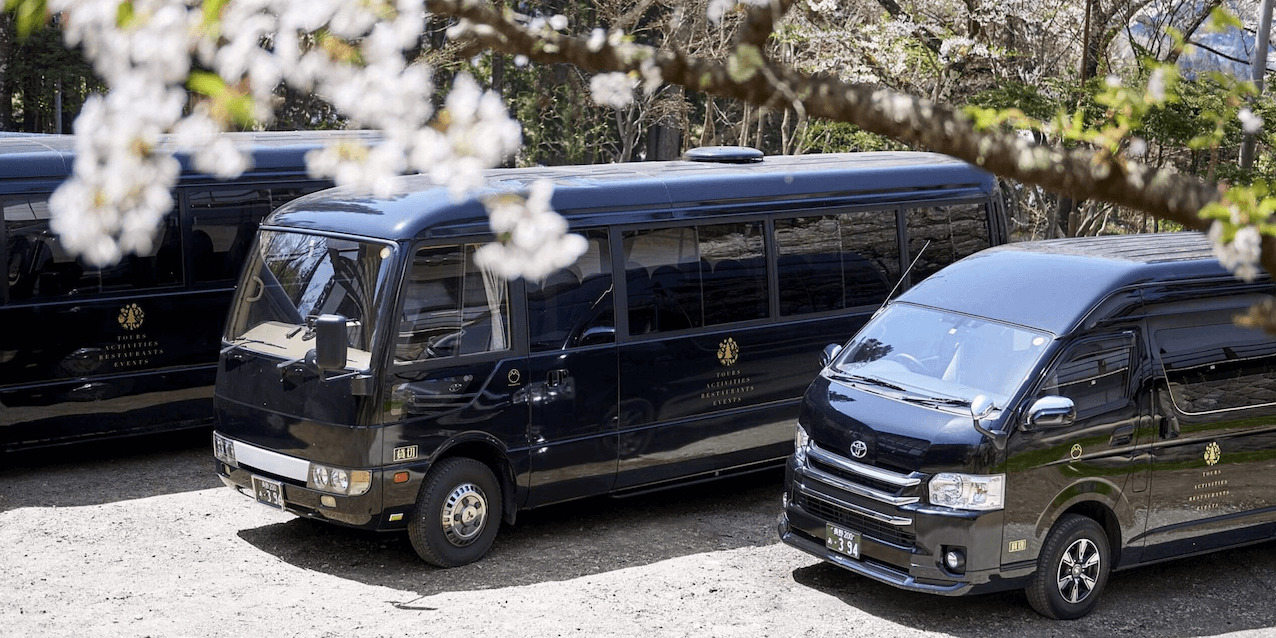

Central Japan offers many, many reasons to visit. Operating all year round, we are Nagano’s No.1-rated tour and charter operator, offering a range of services including group tours, private tours and charters. We can arrange transport including a private vehicle and driver, along with an English-speaking guide, to transport to, from and between any of these destinations and more!
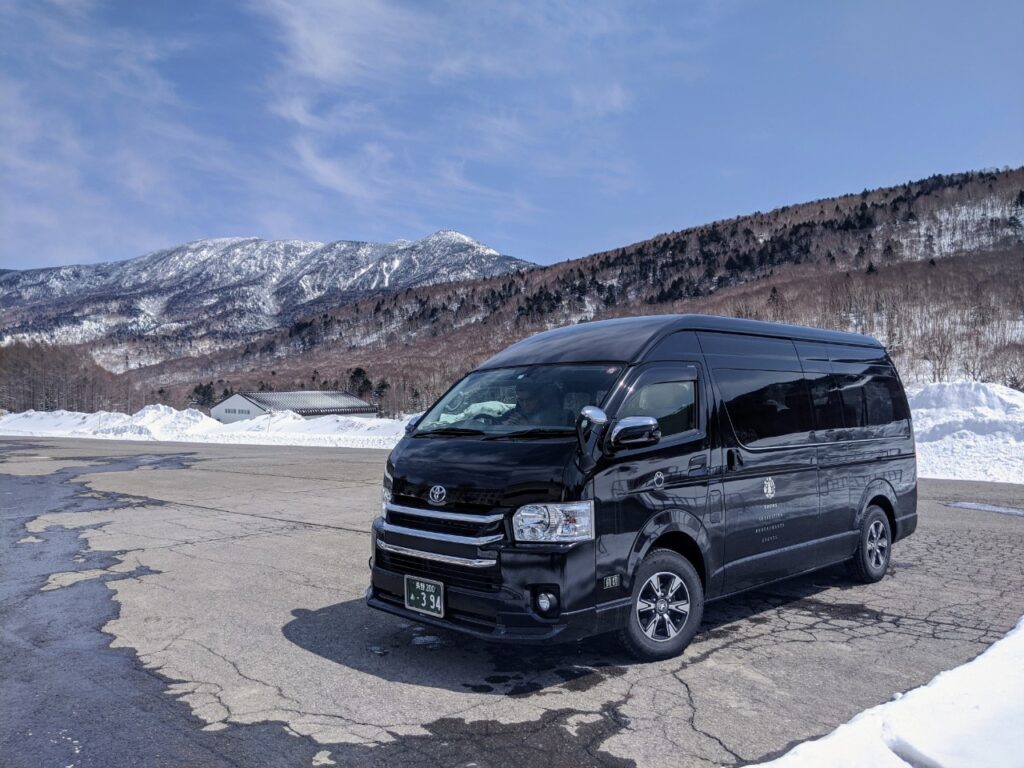

Our drivers and vehicles are fully certified, allowing us to transport you to and from your preferred destinations in combination with any activity that suits your schedule. All vehicles are fitted with a protective screen – separating the driver from passenger and luggage area – and our drivers wear protective masks, allowing you to move between your destinations in comfort and safety.
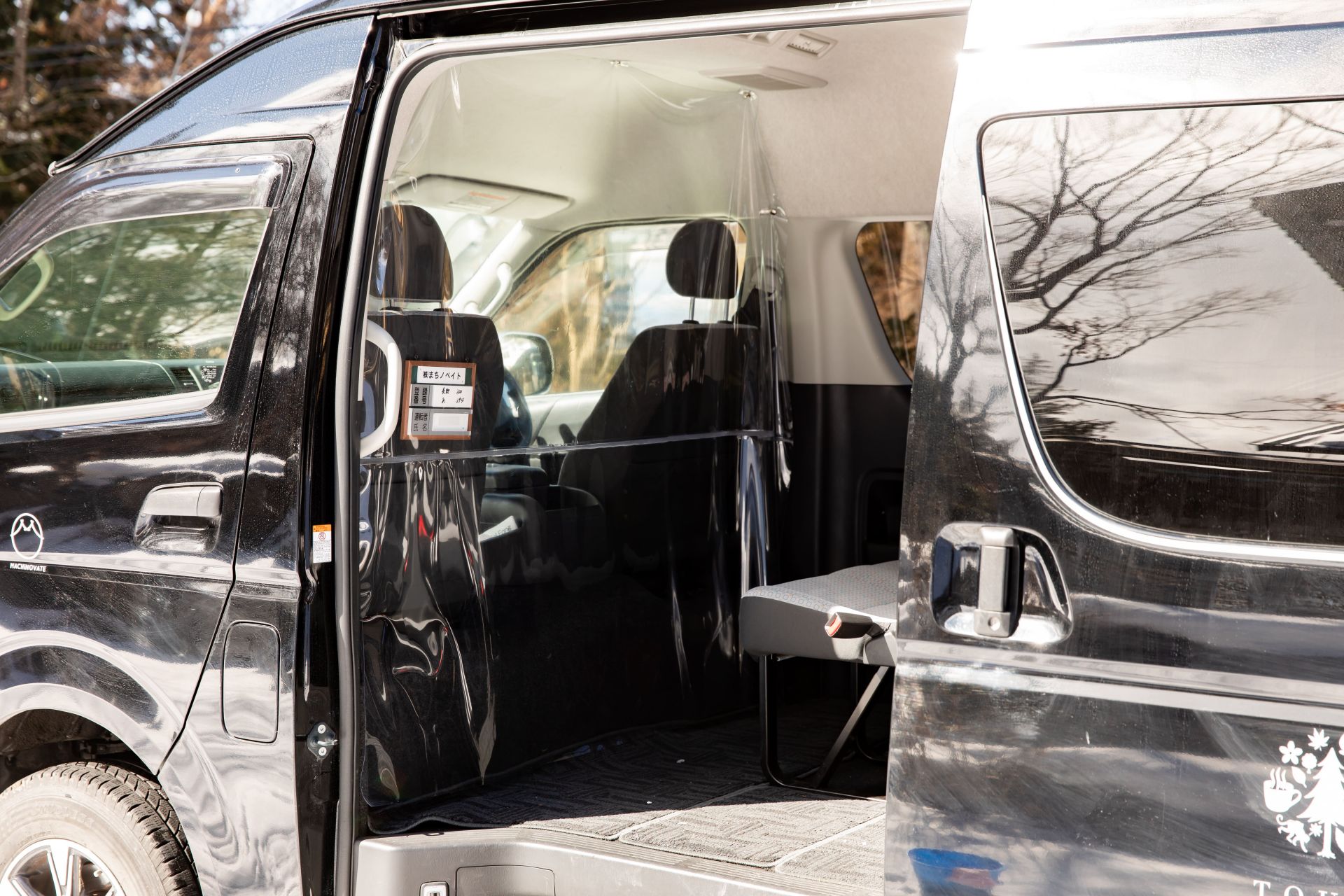
We can arrange both private tours with an English-speaking guide or a private charter, including a private vehicle and driver but without a guide. We’d love to be part of your adventure in Central Japan and help you discover even more!
Why choose us?
Awarded a 2022 TripAdvisor Travelers’ Choice Award for our 1-Day Snow Monkeys, Zenko-ji Temple & Sake Tour – recognised as one of the Top 10 Experiences in Japan – we have the local knowledge and experience to help you get the most out of your time in Japan.
Got a question about visiting Central Japan? Contact us and let’s get planning together!



